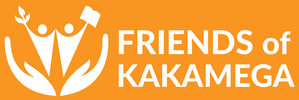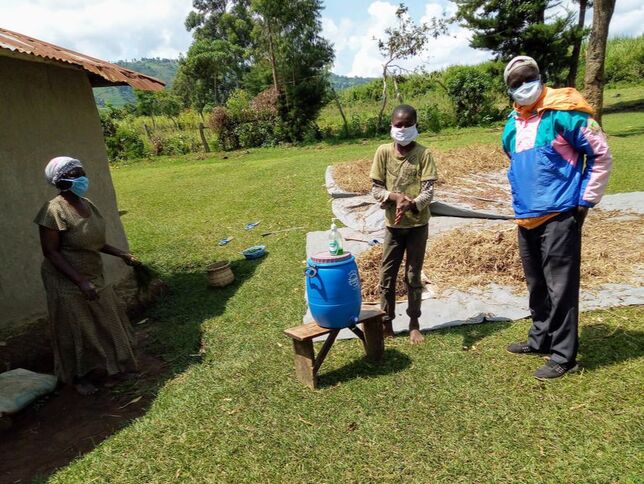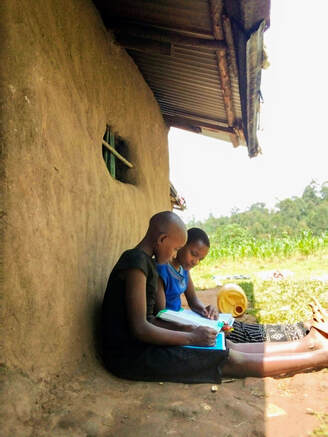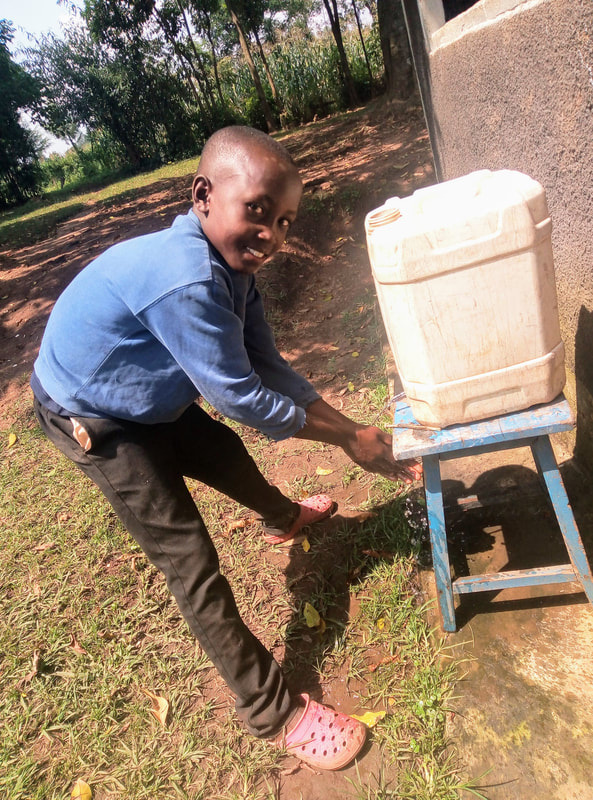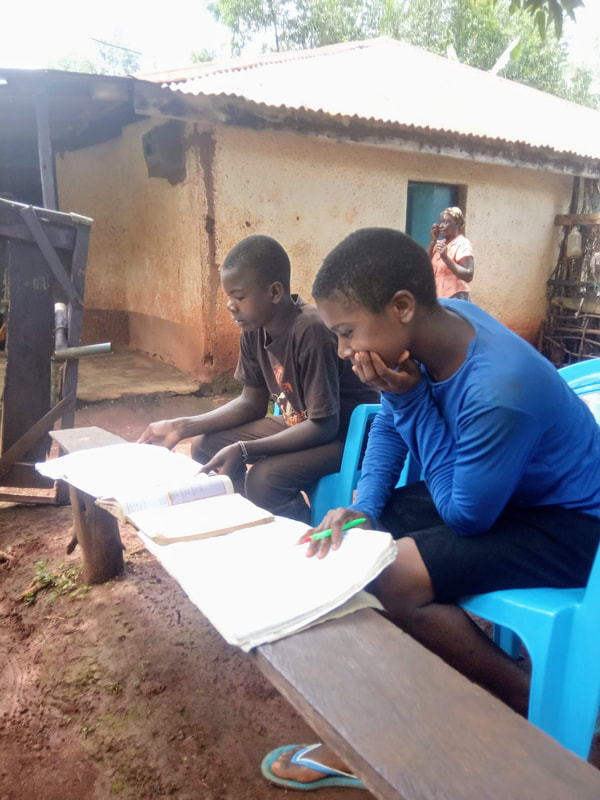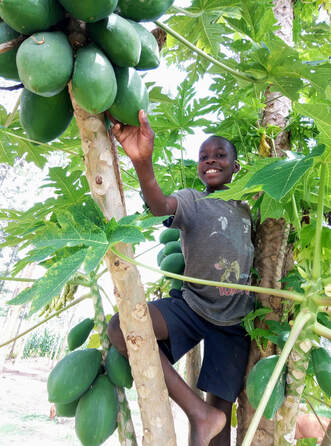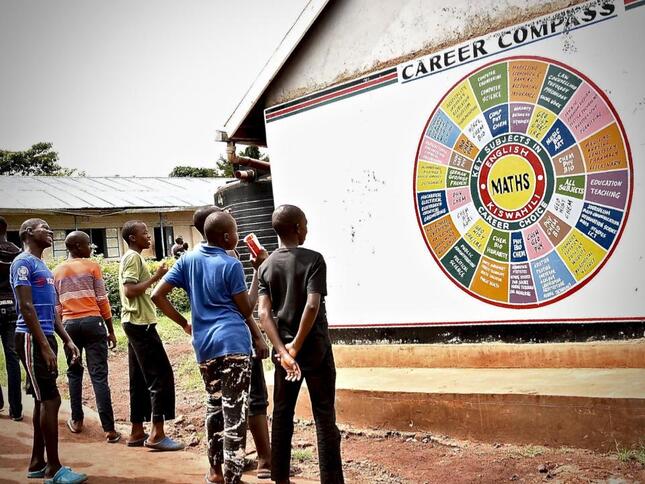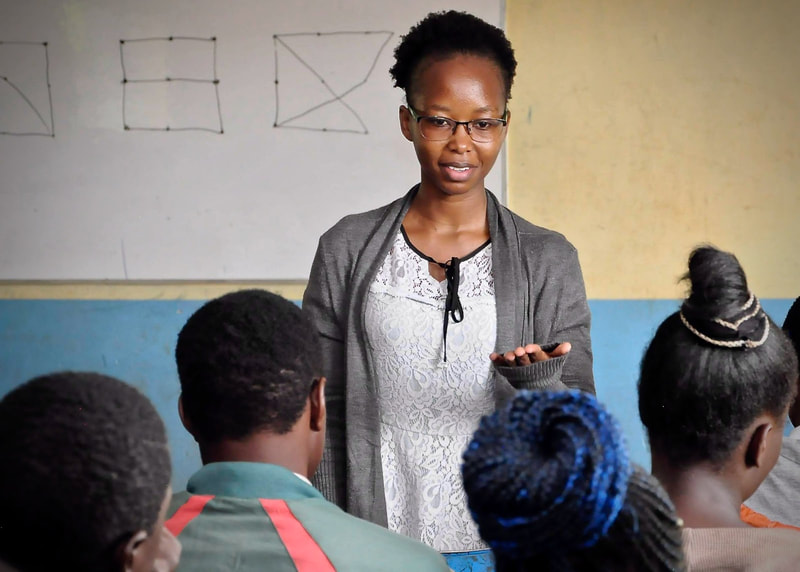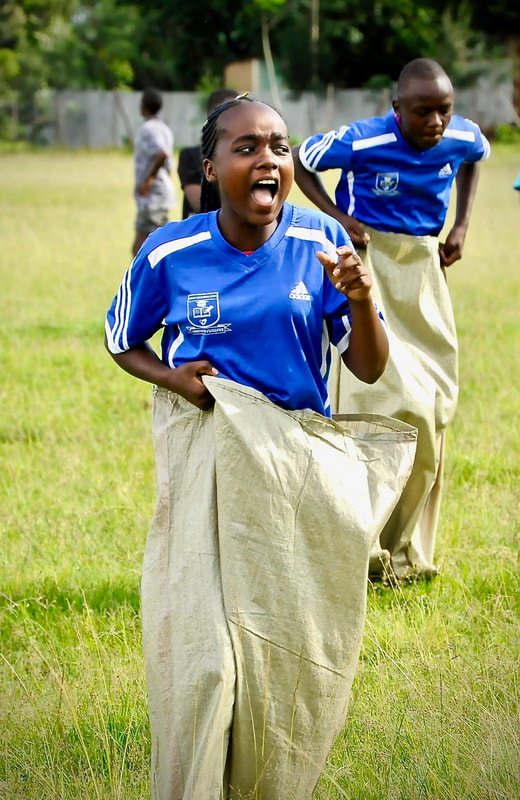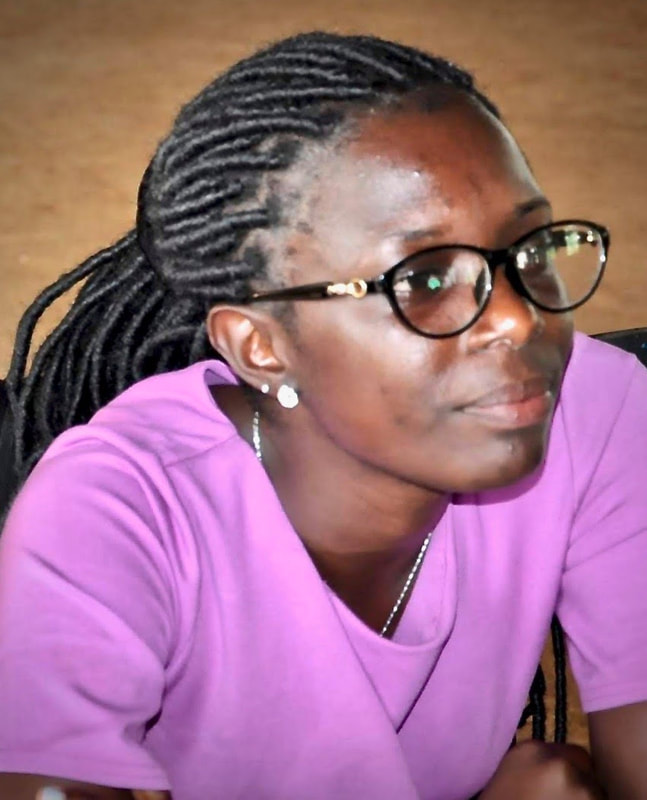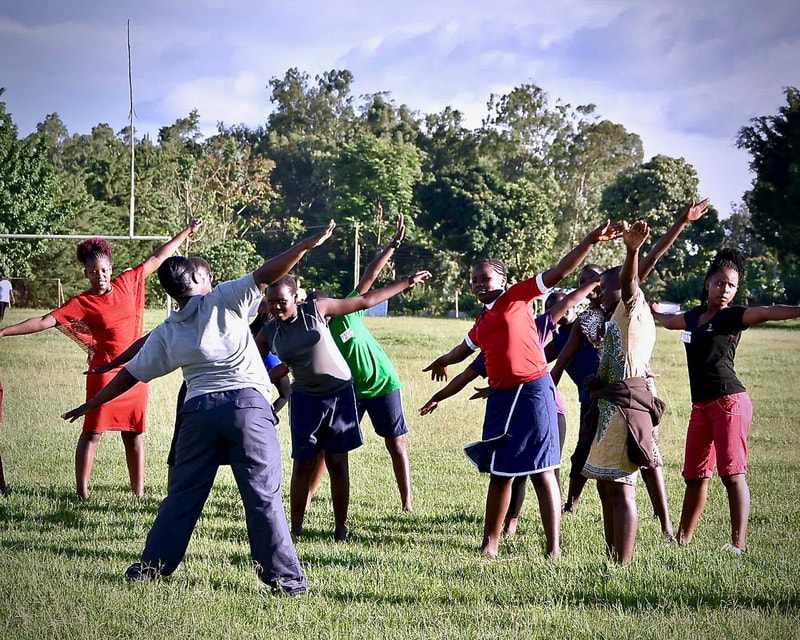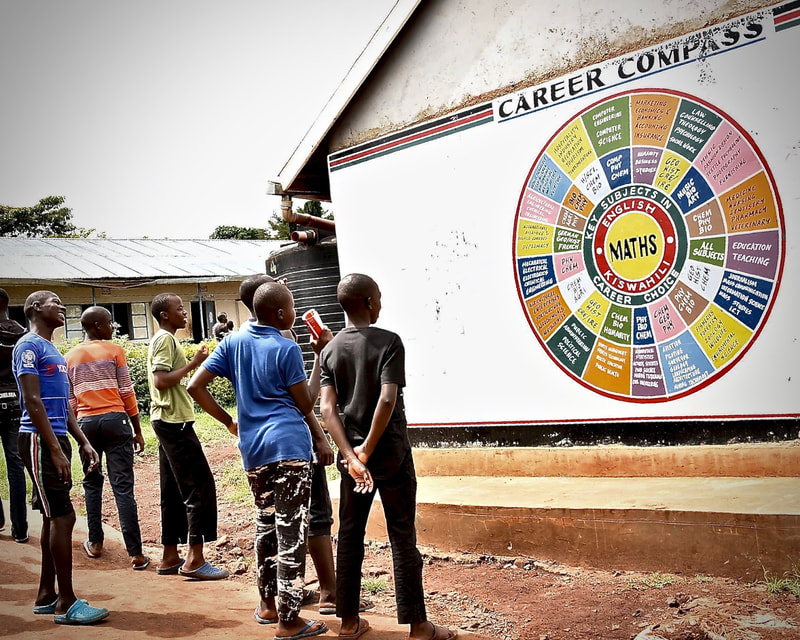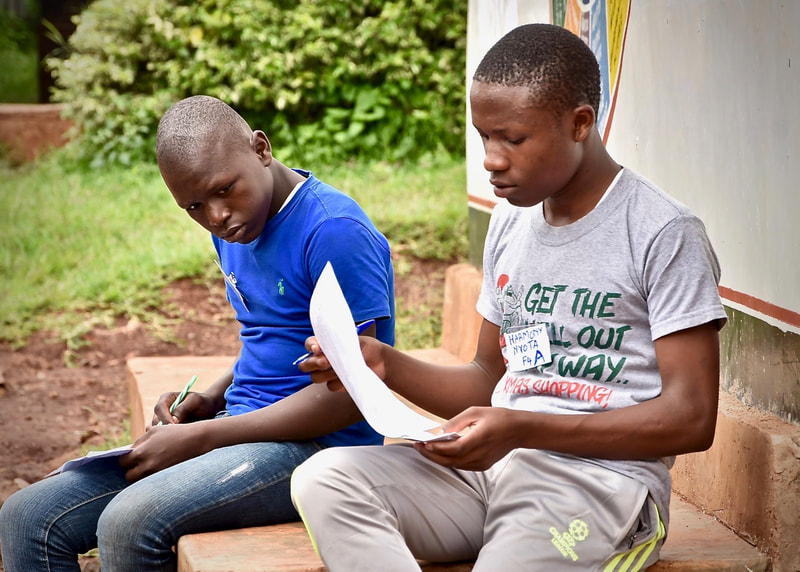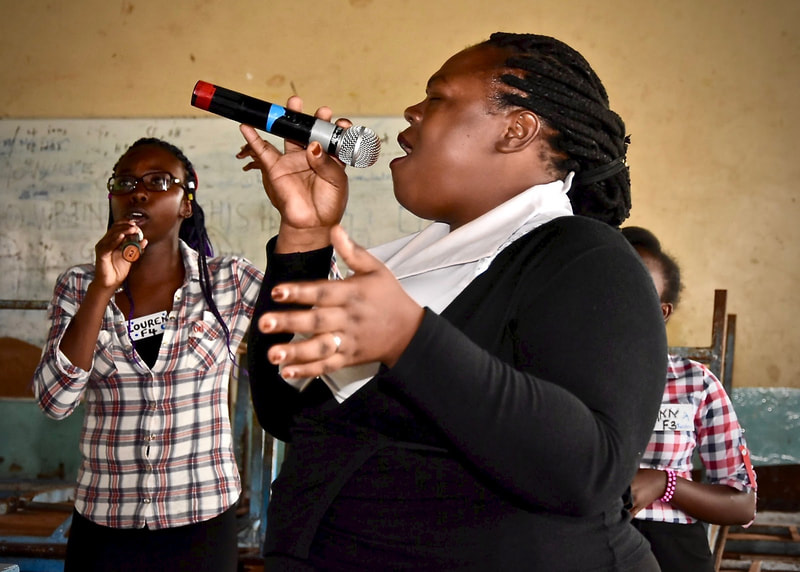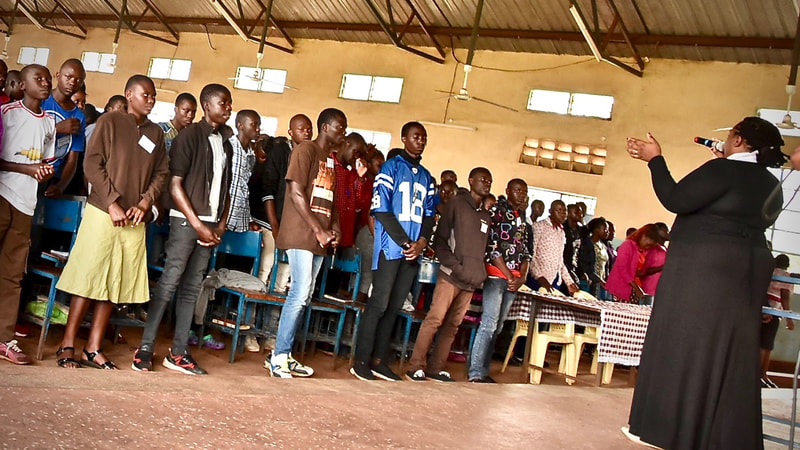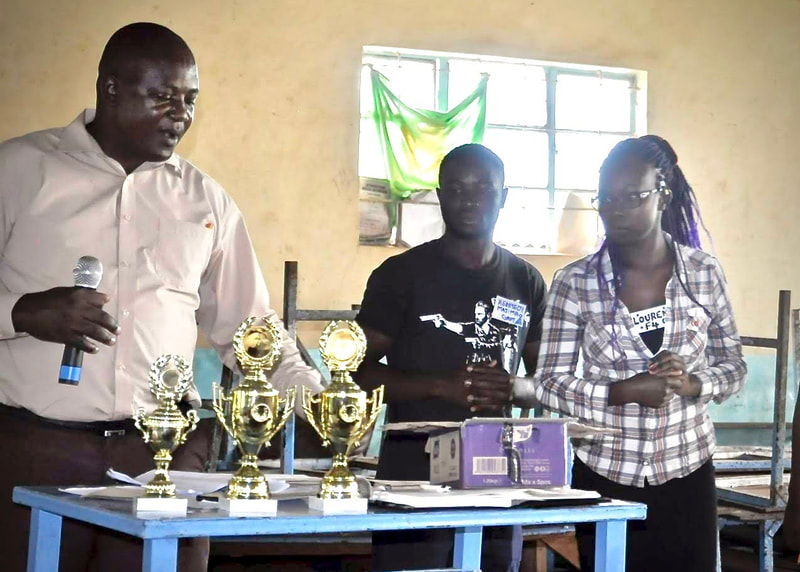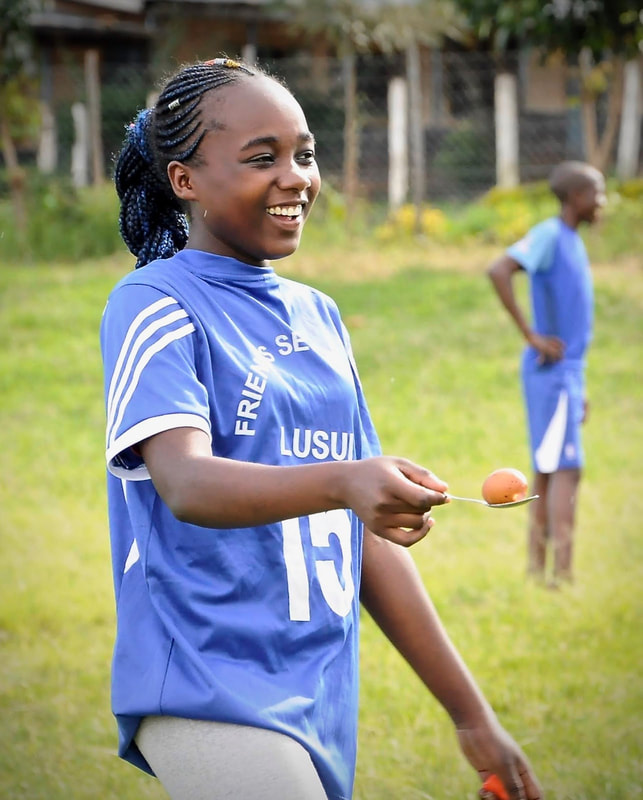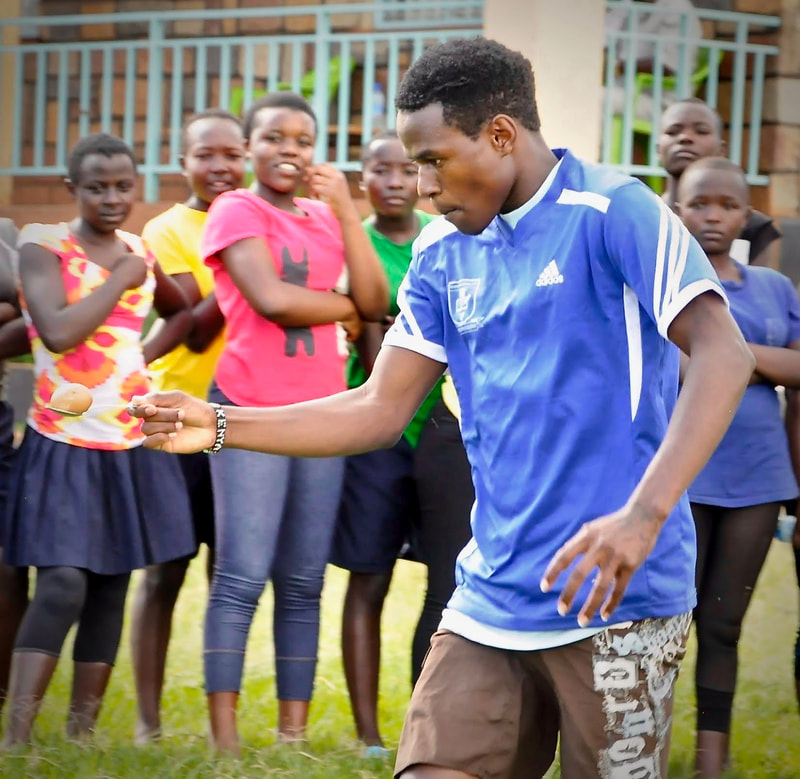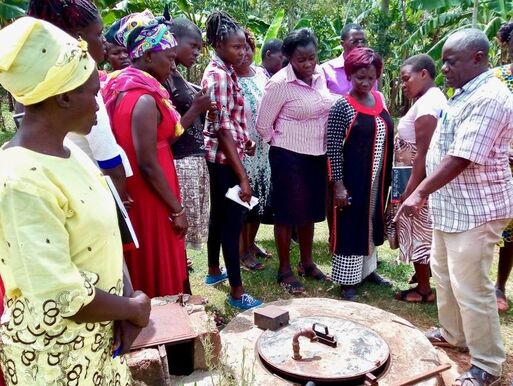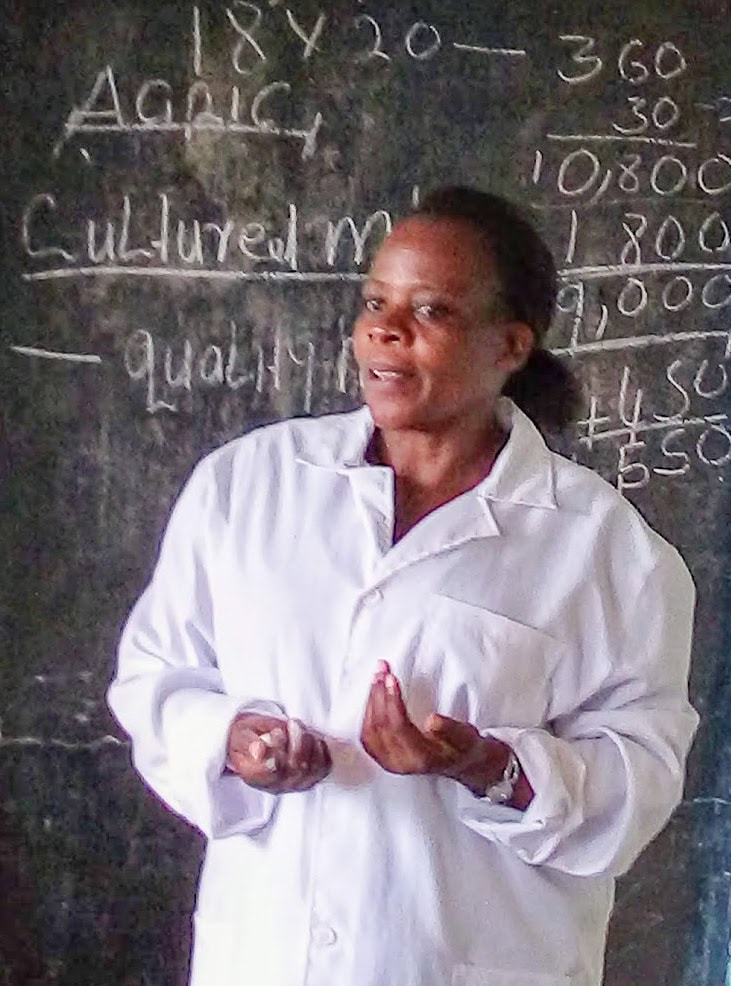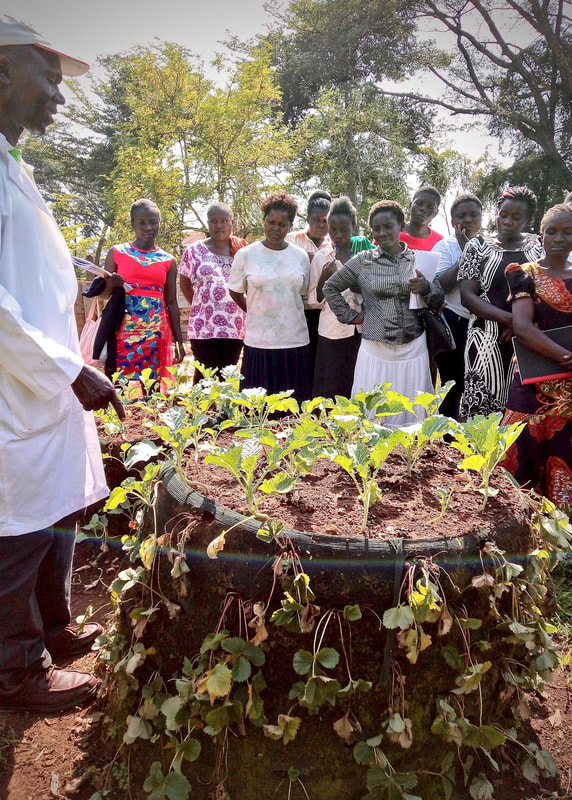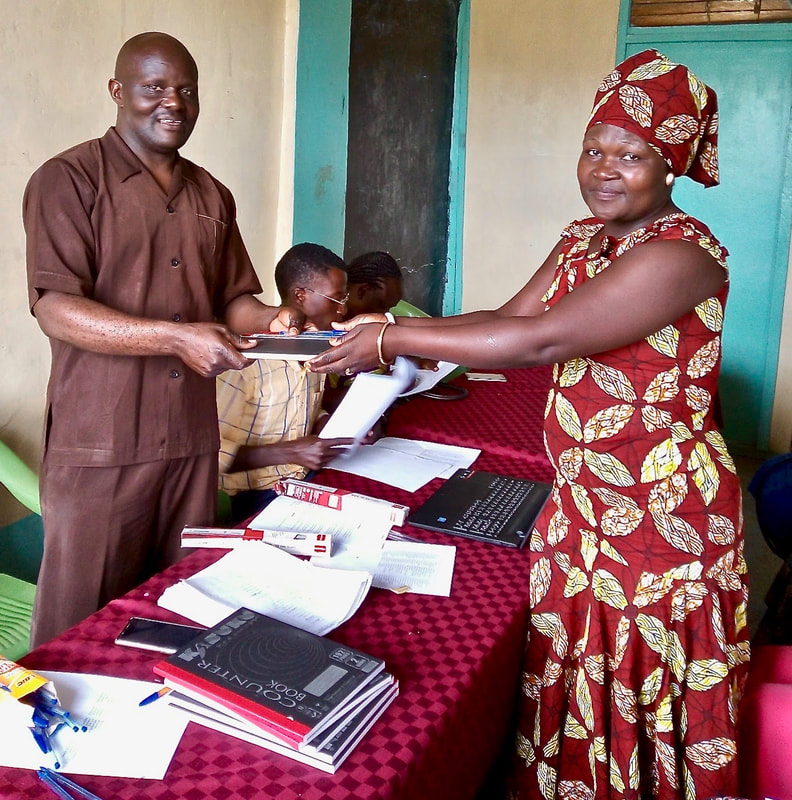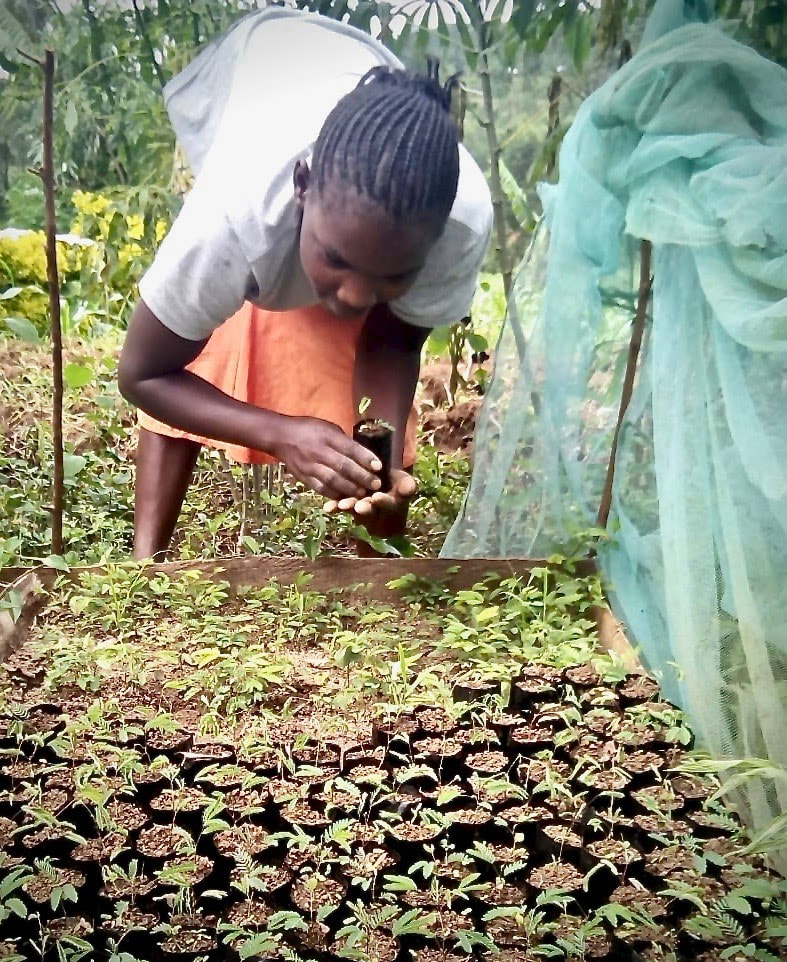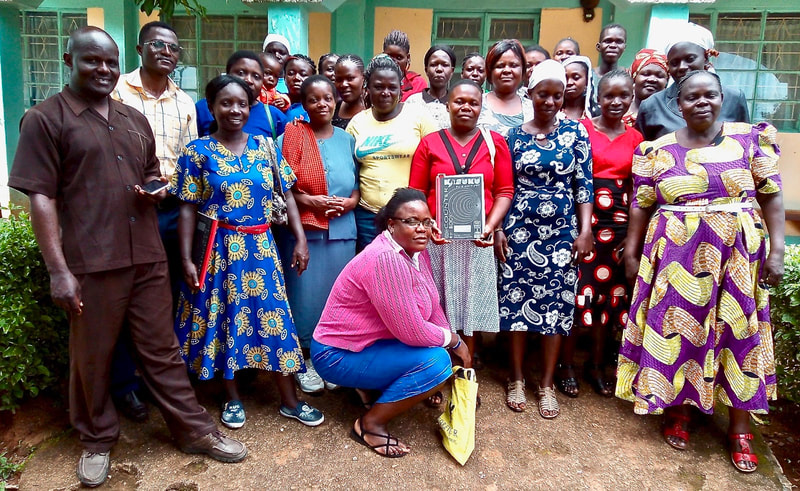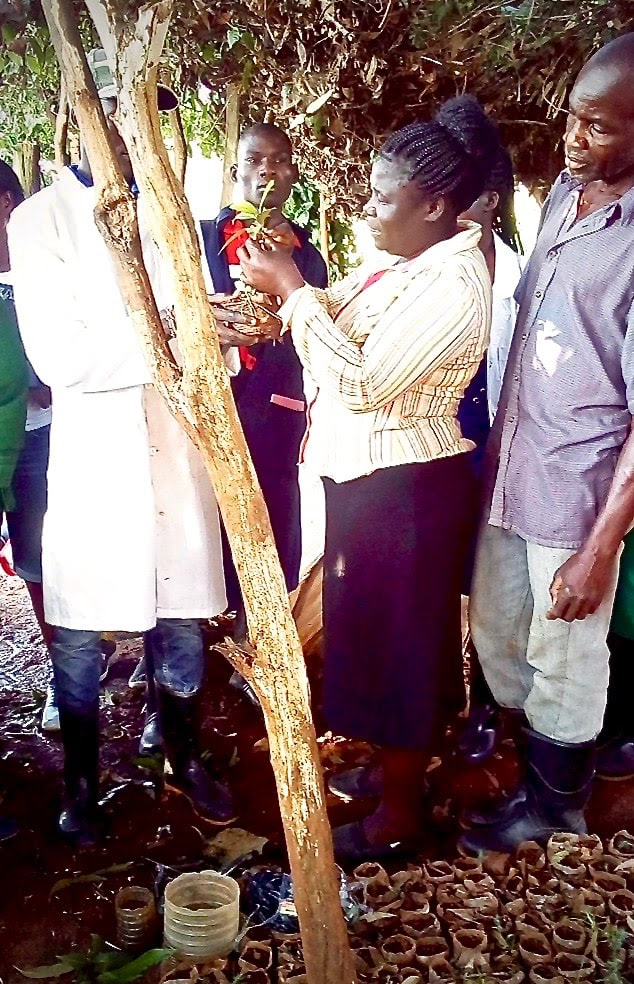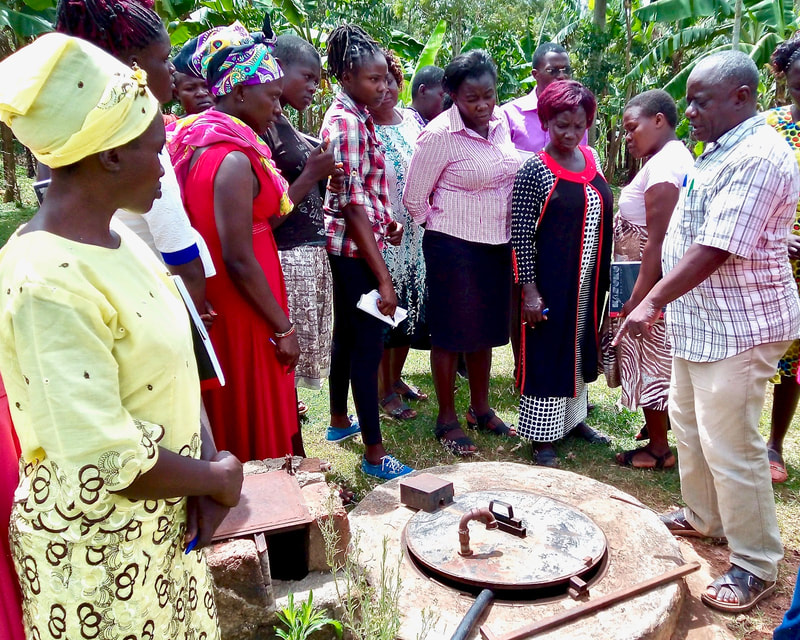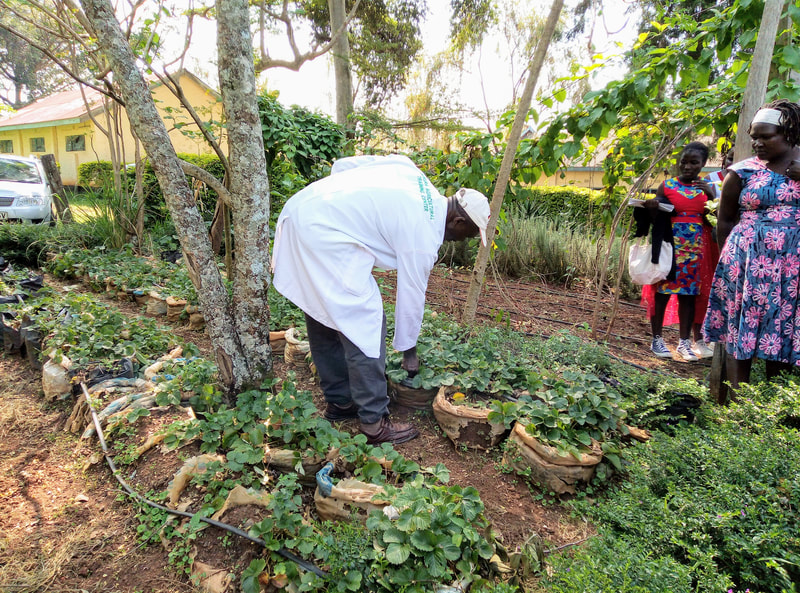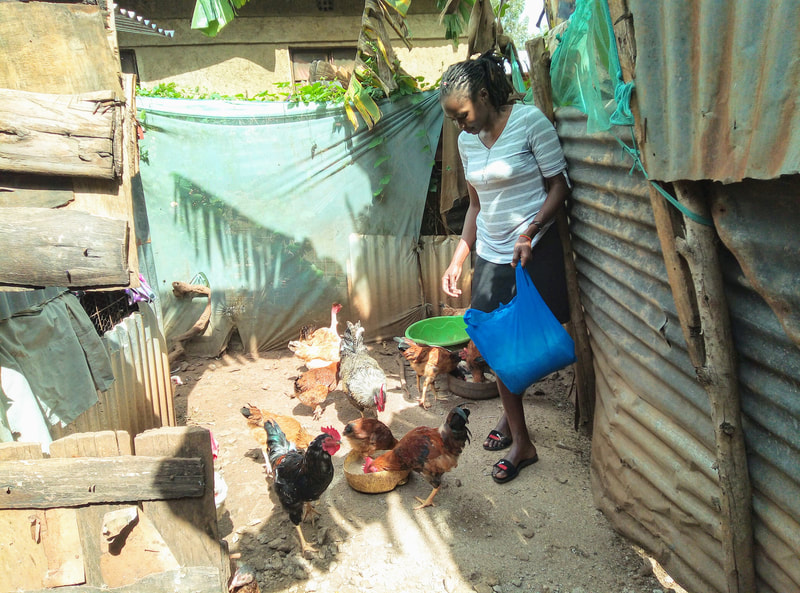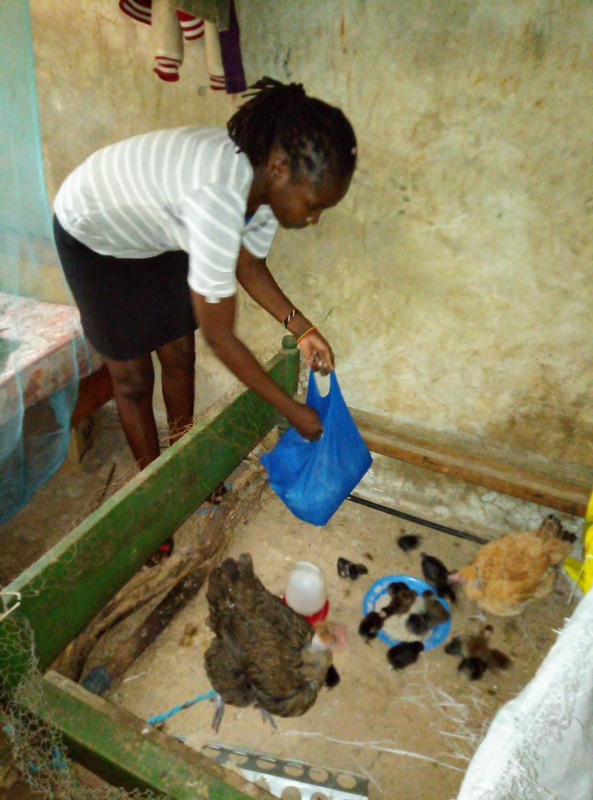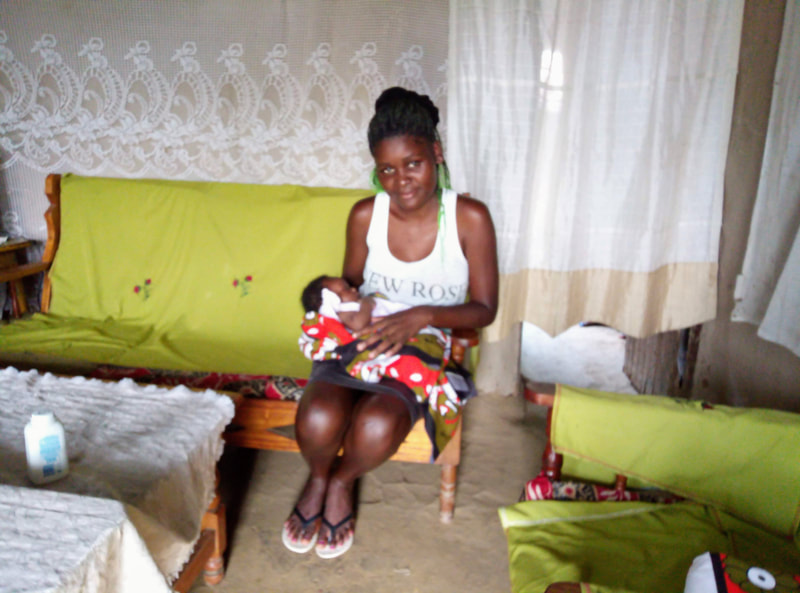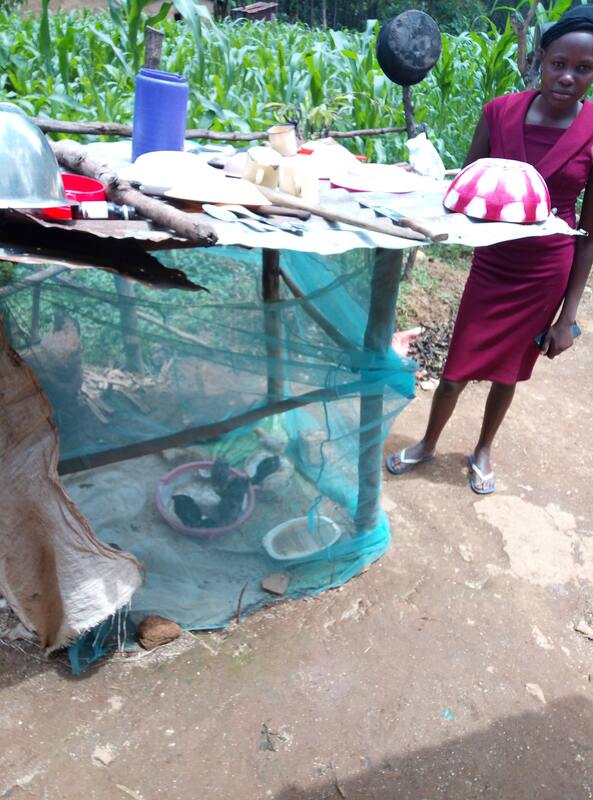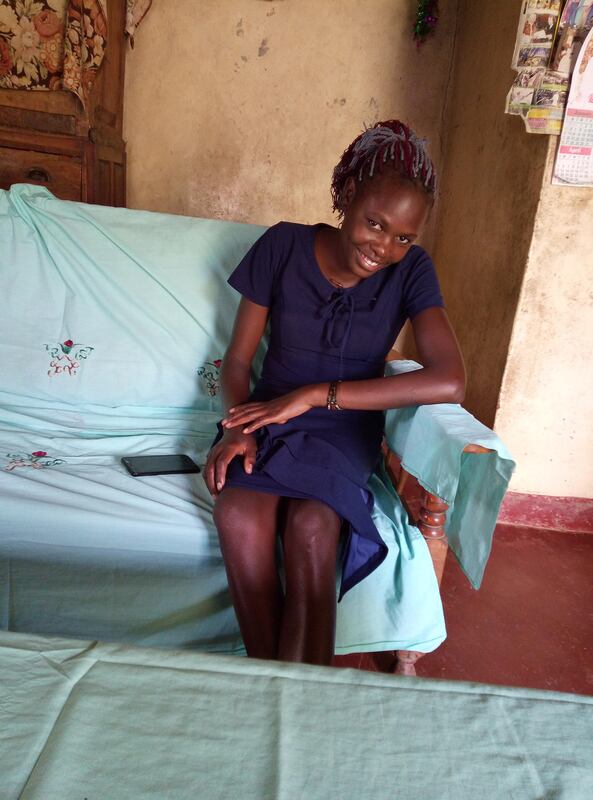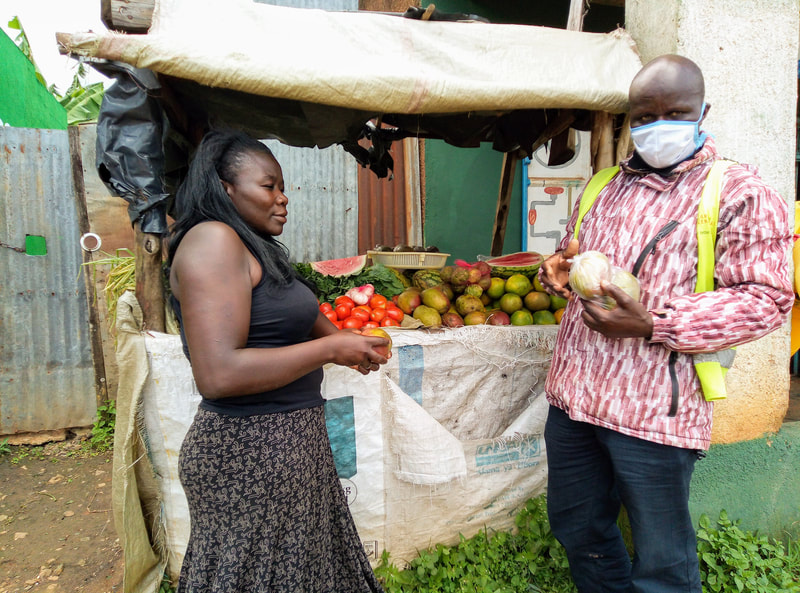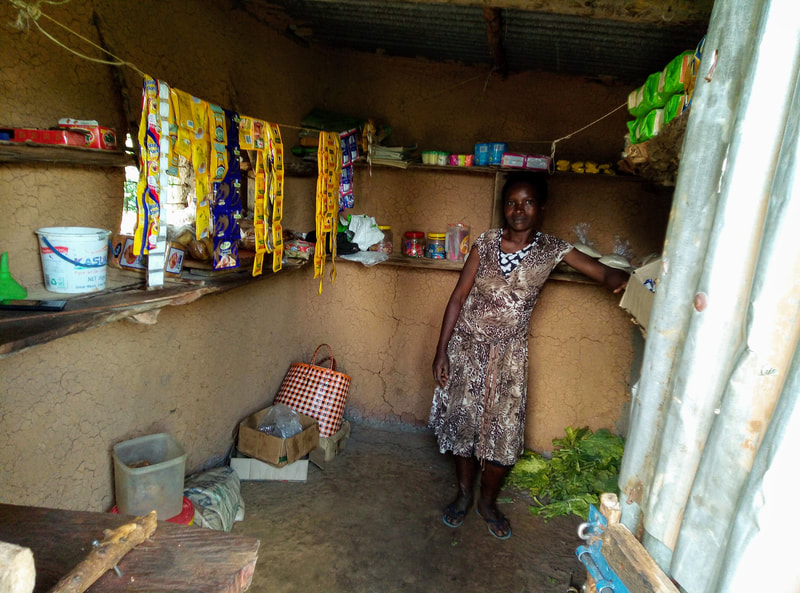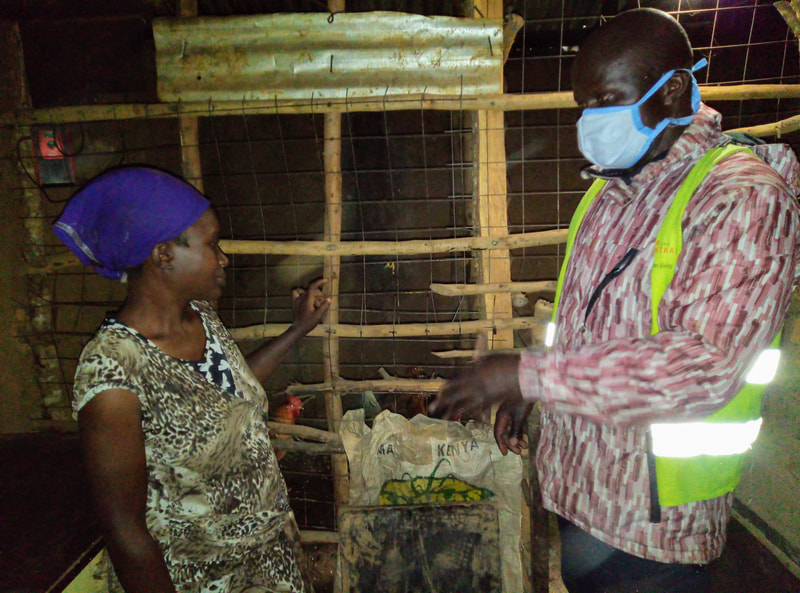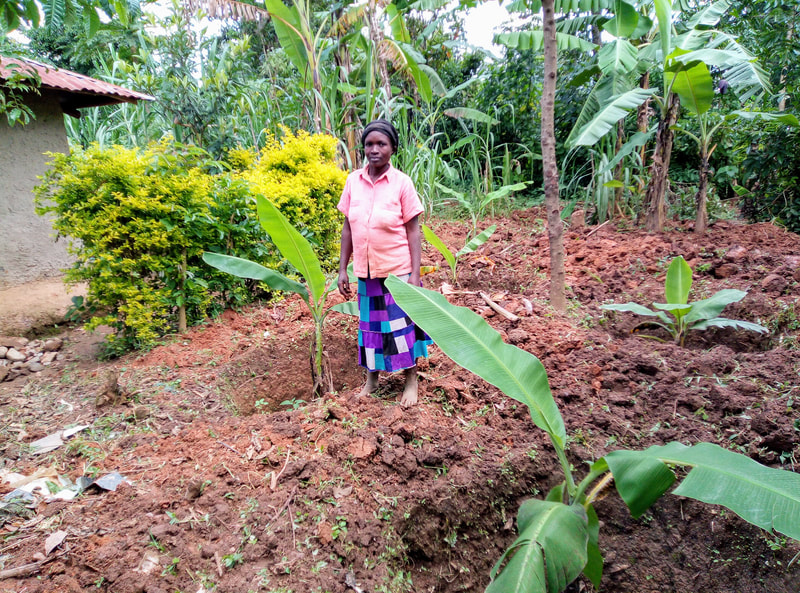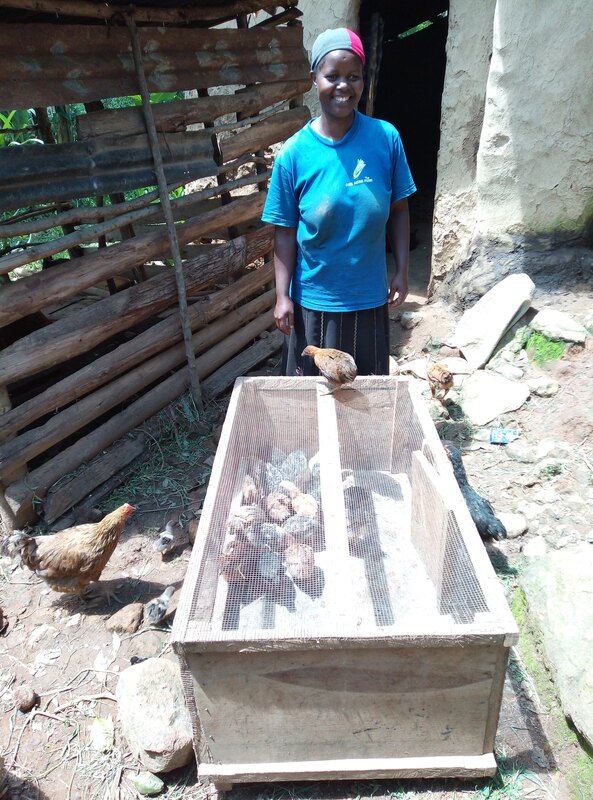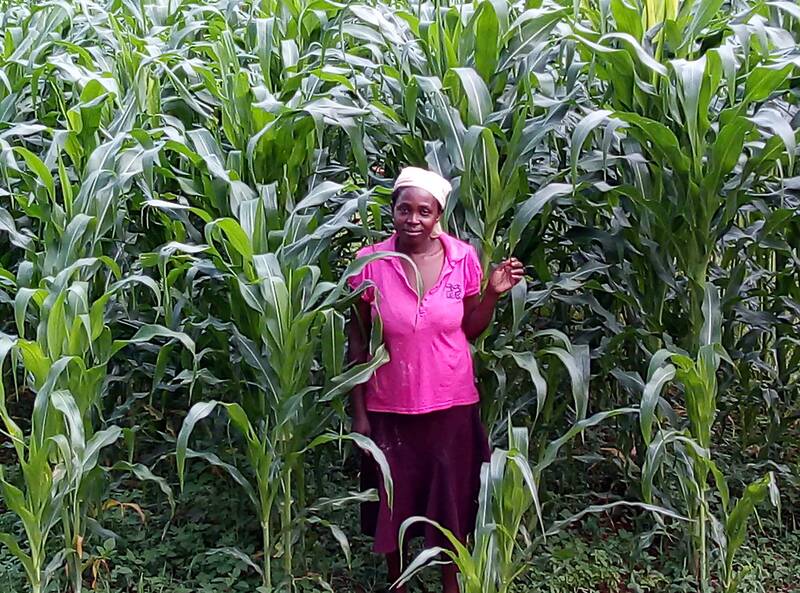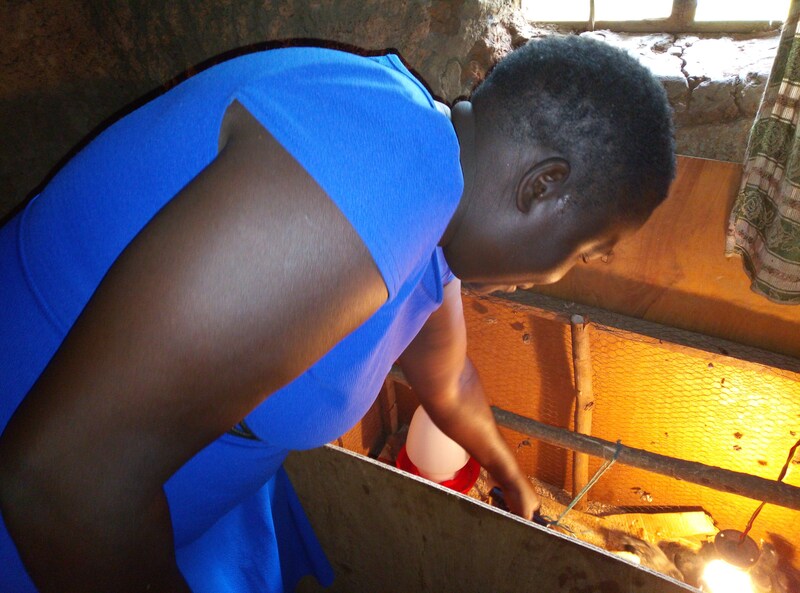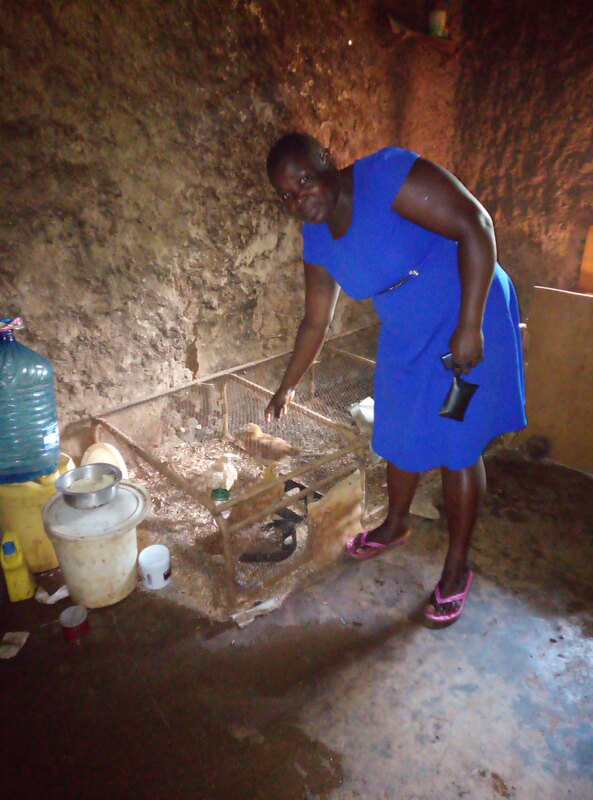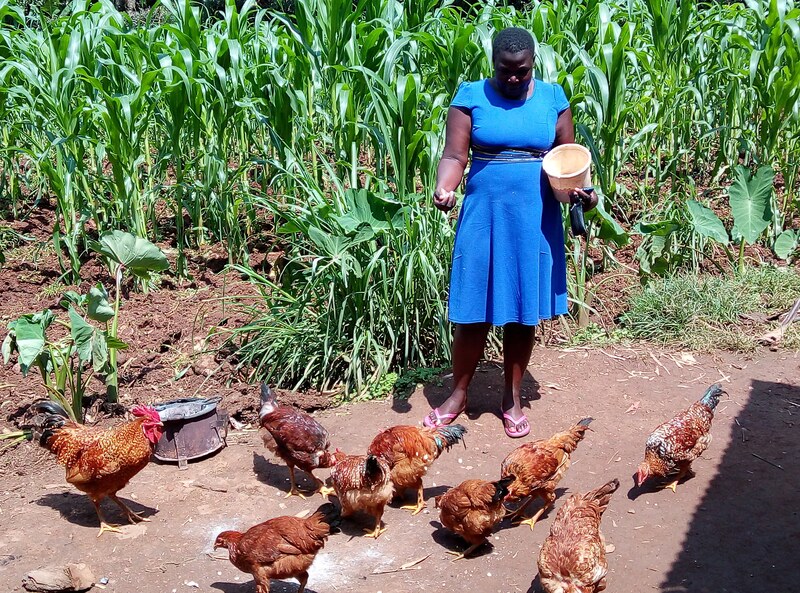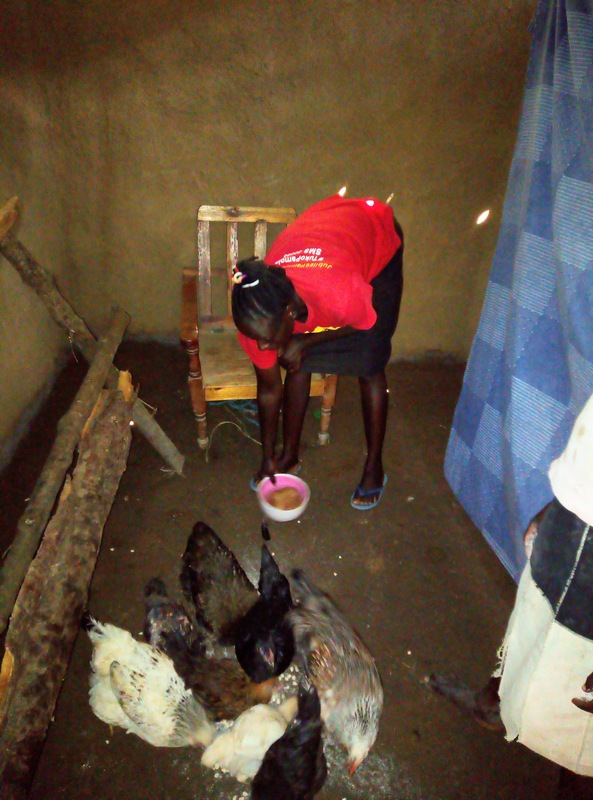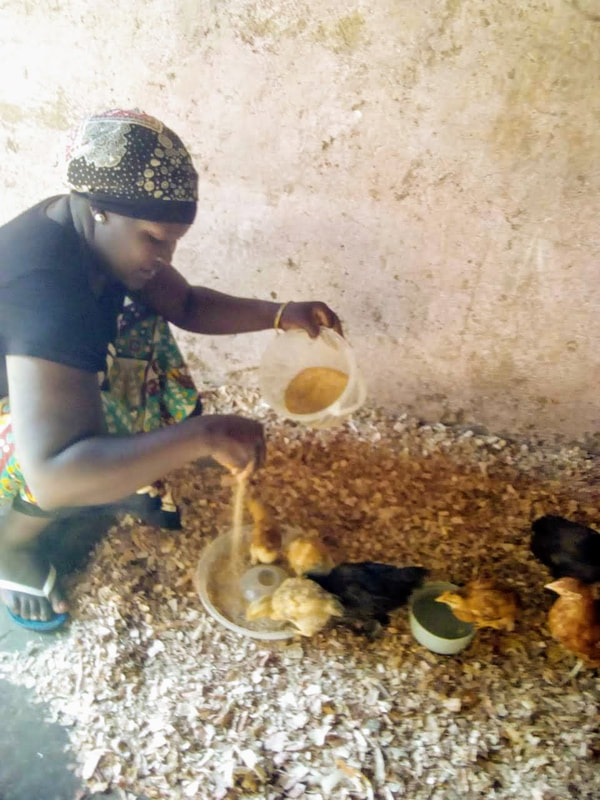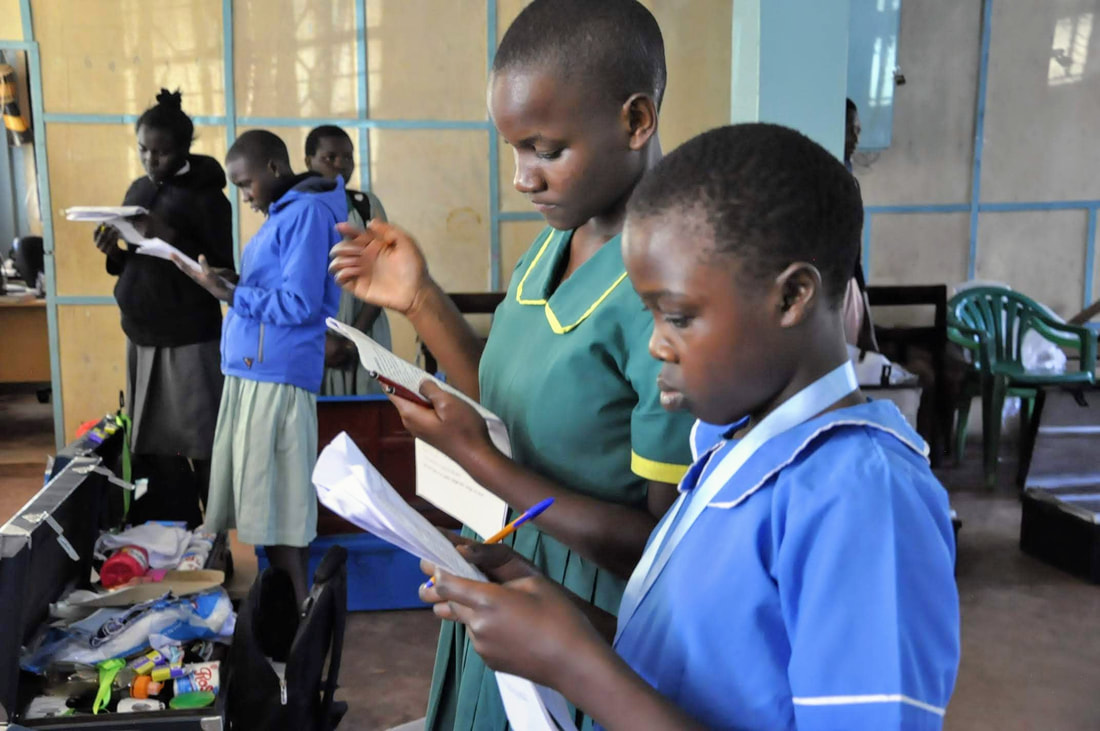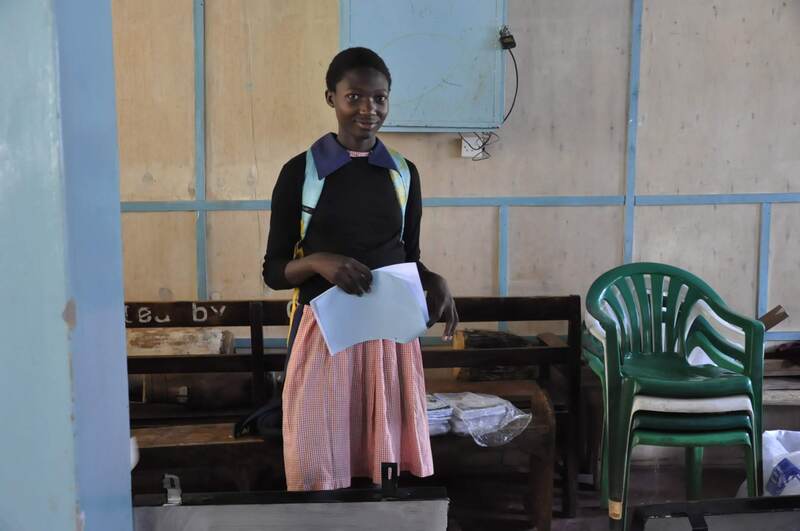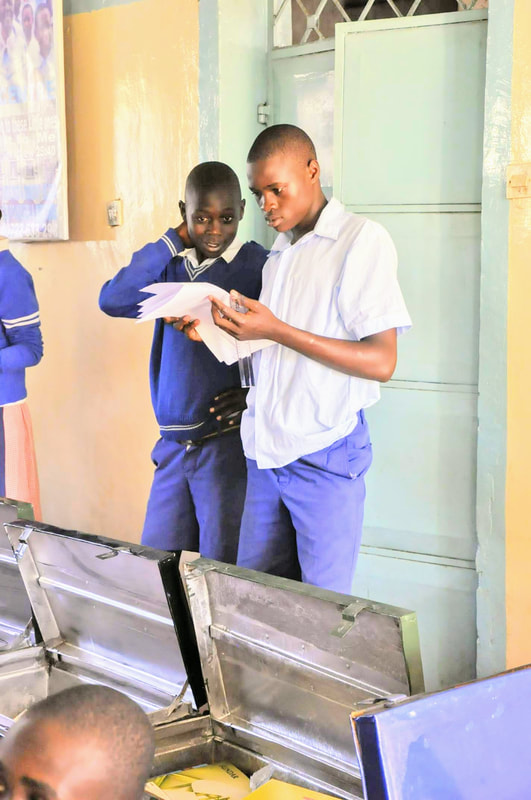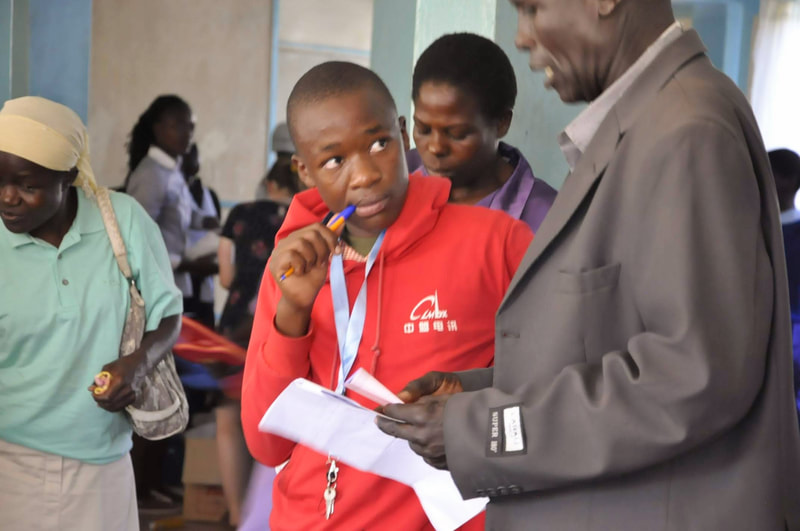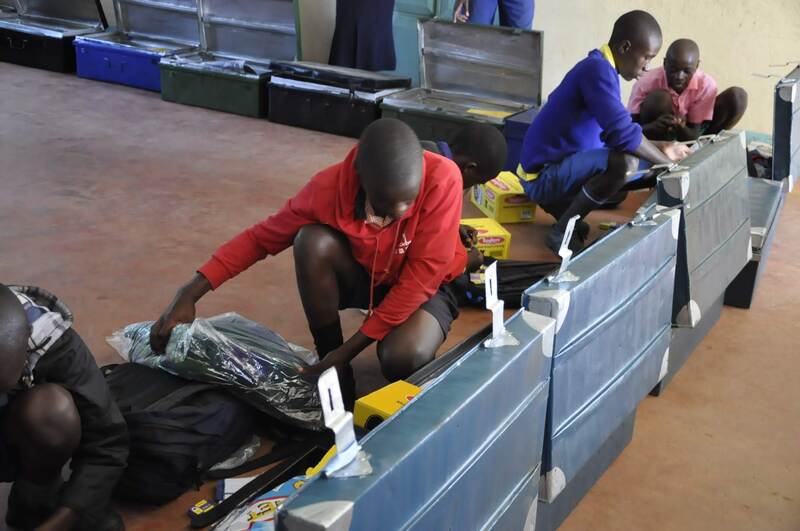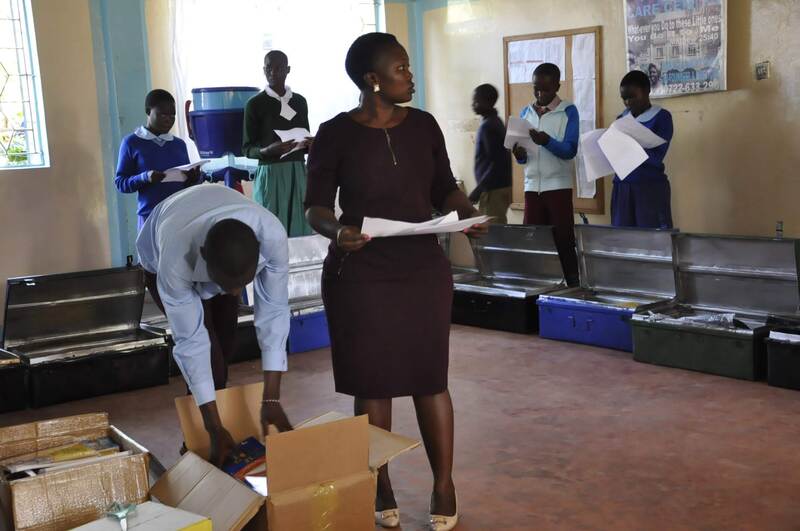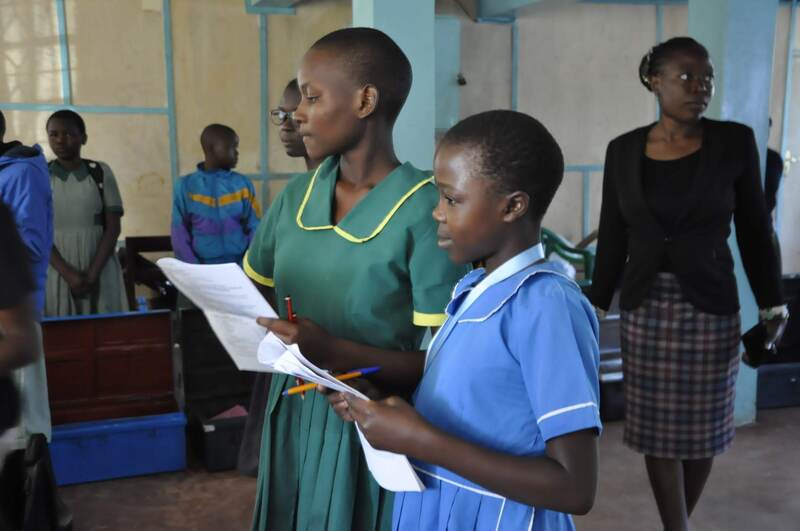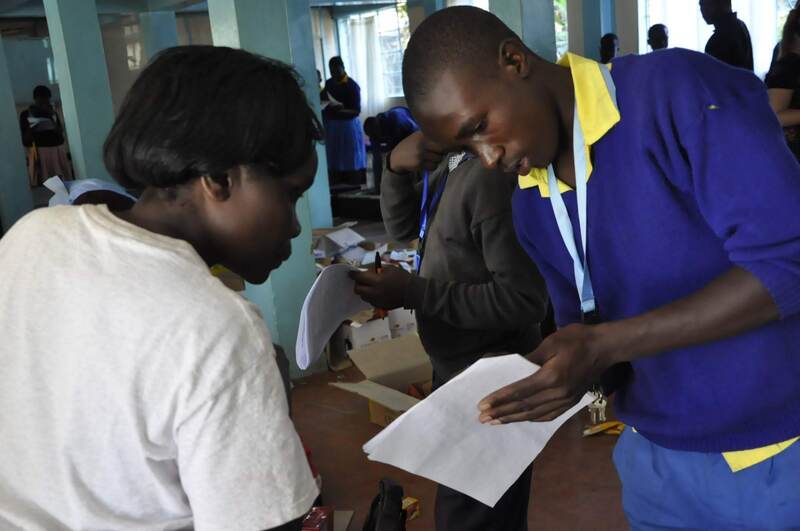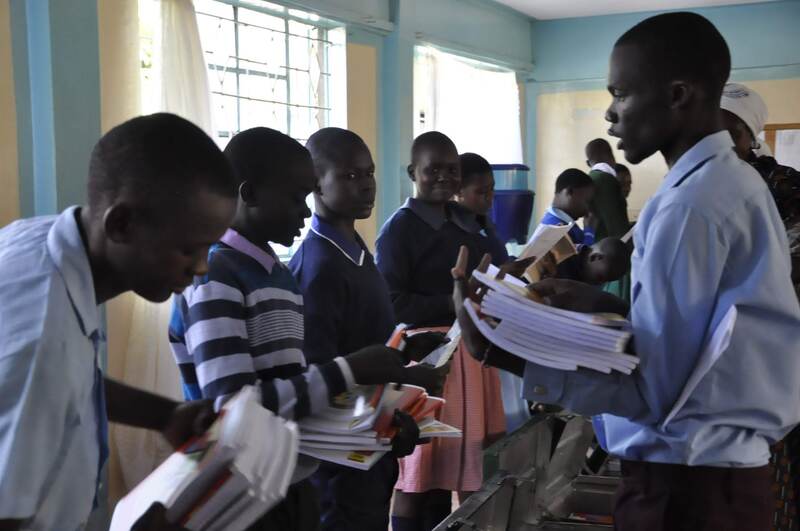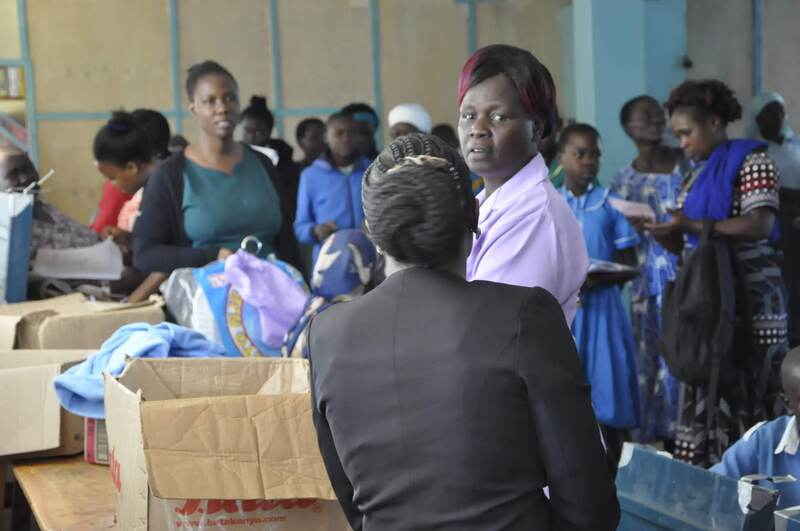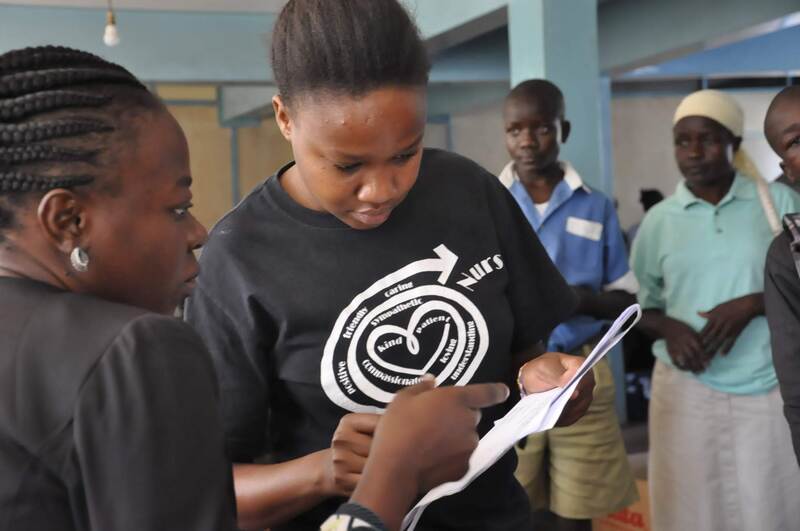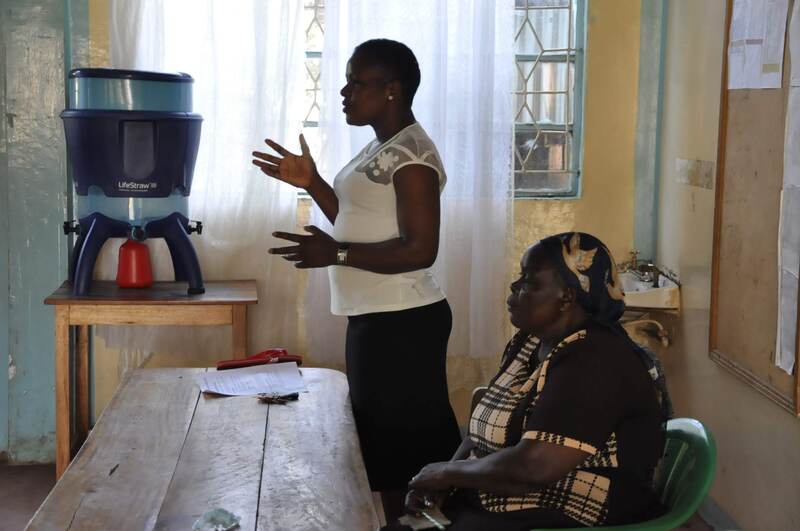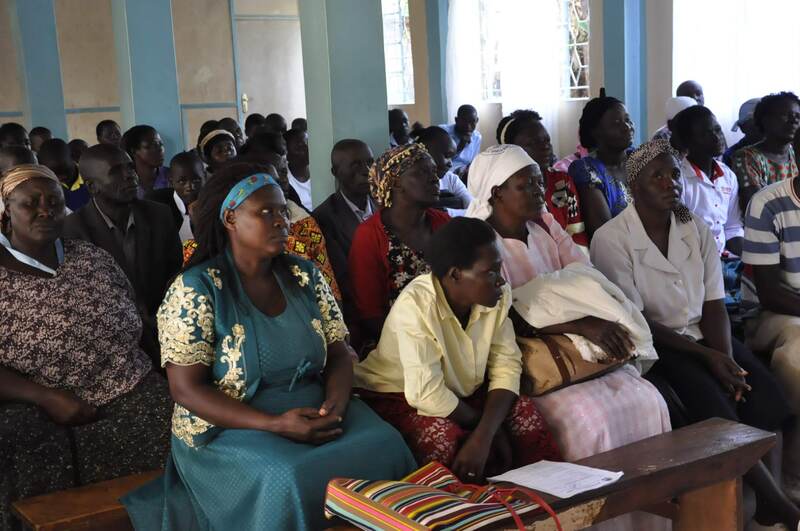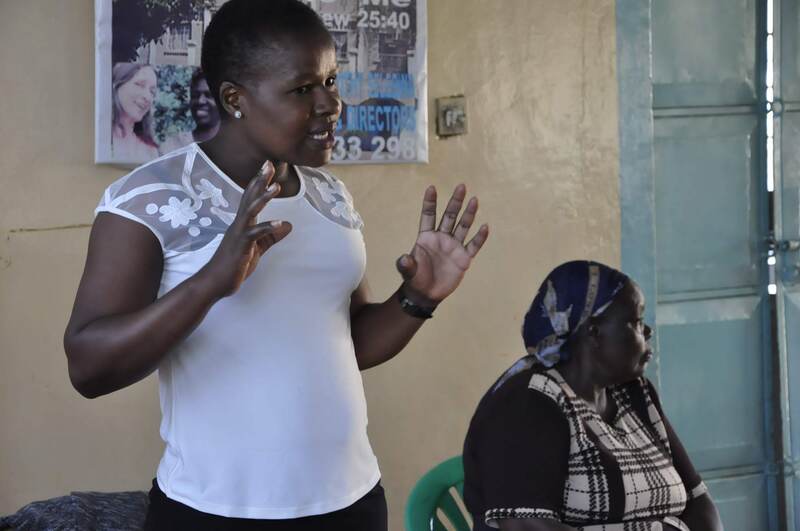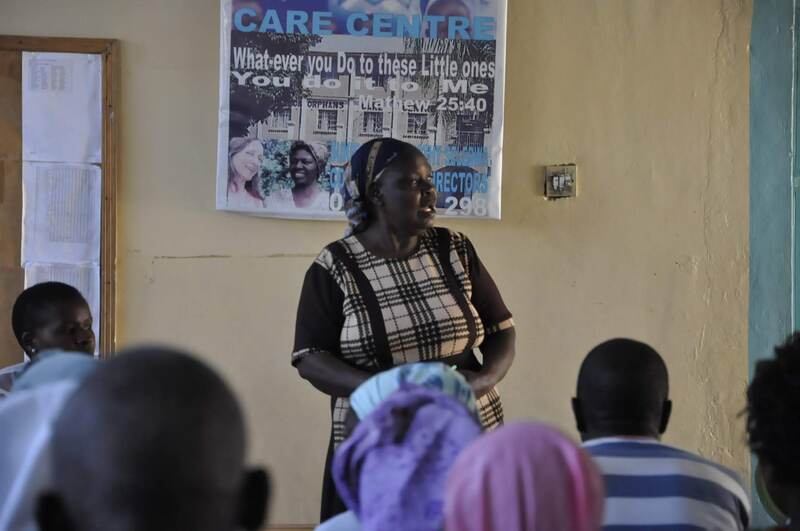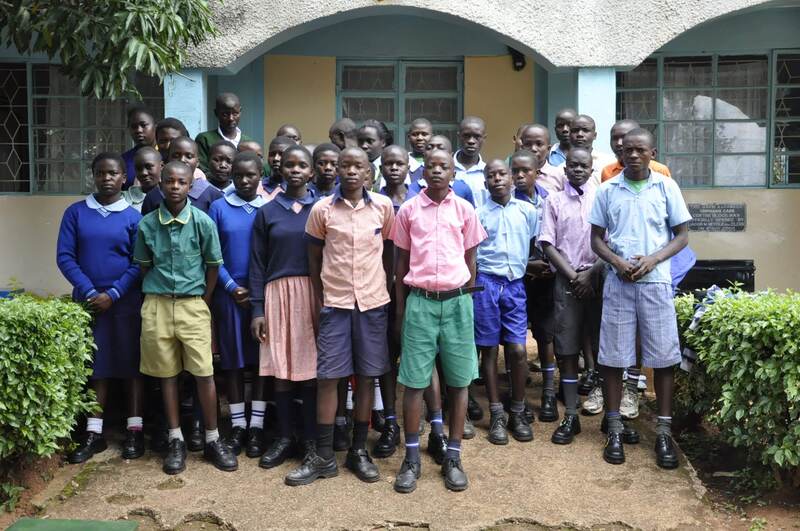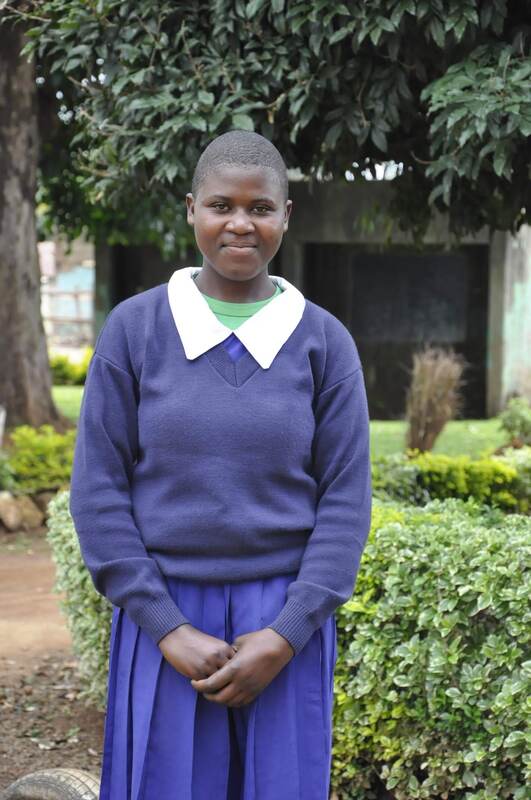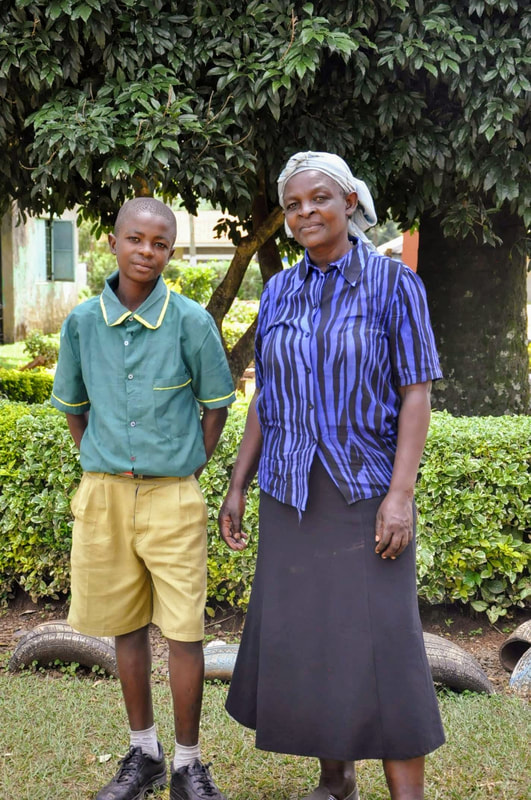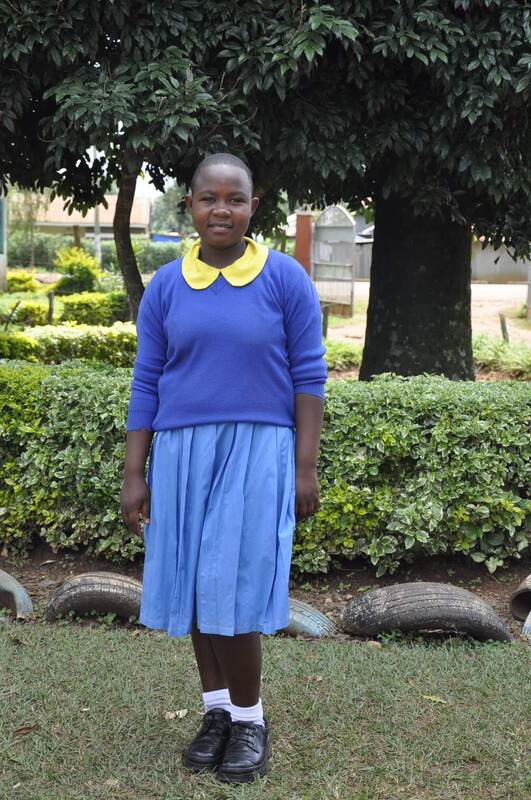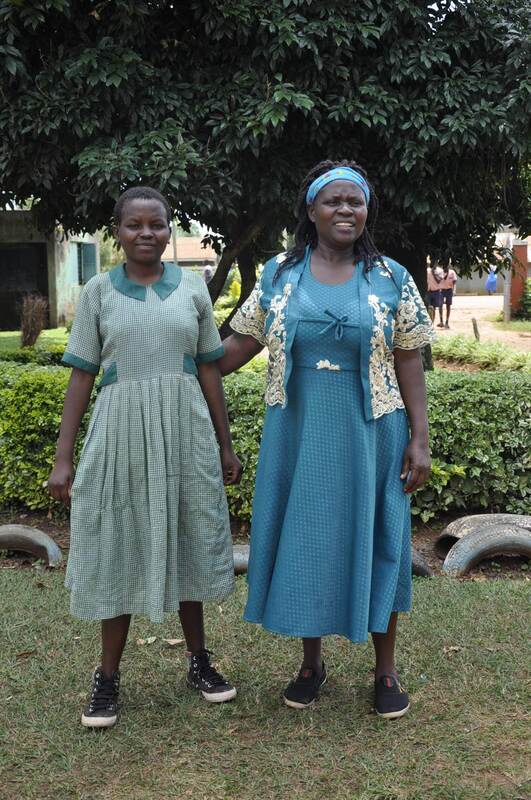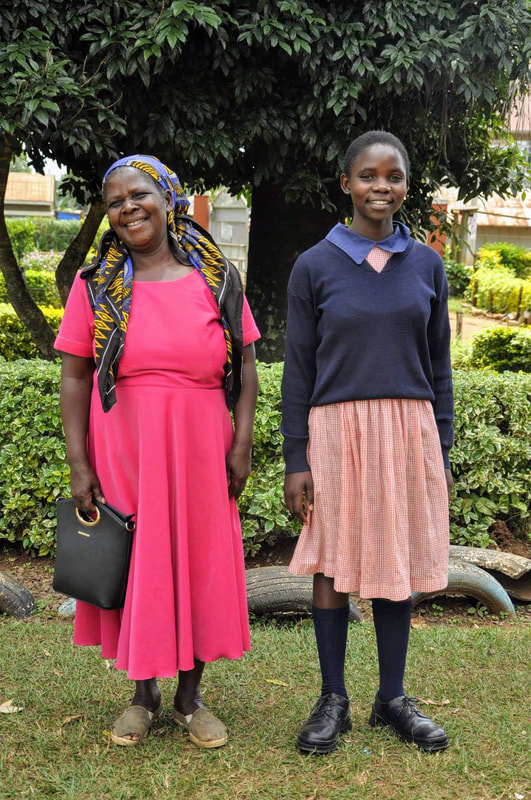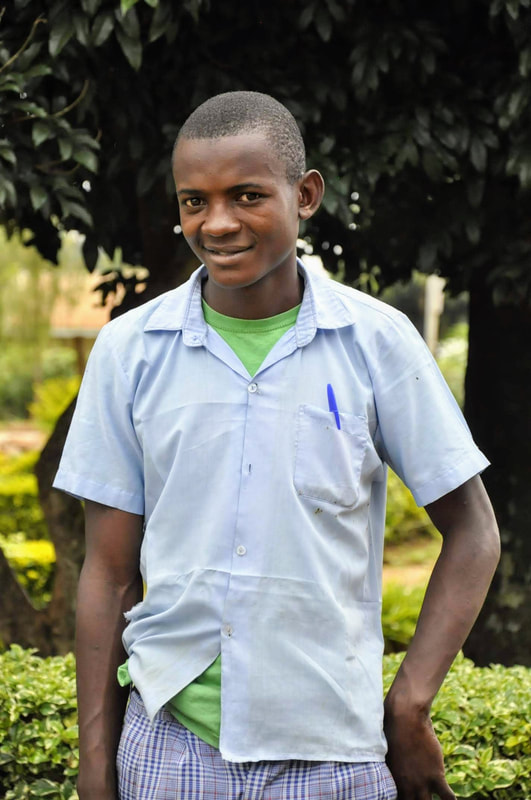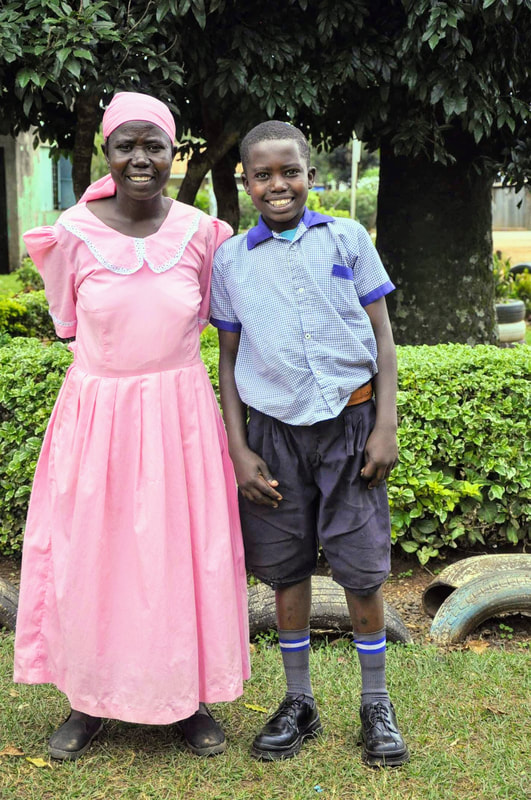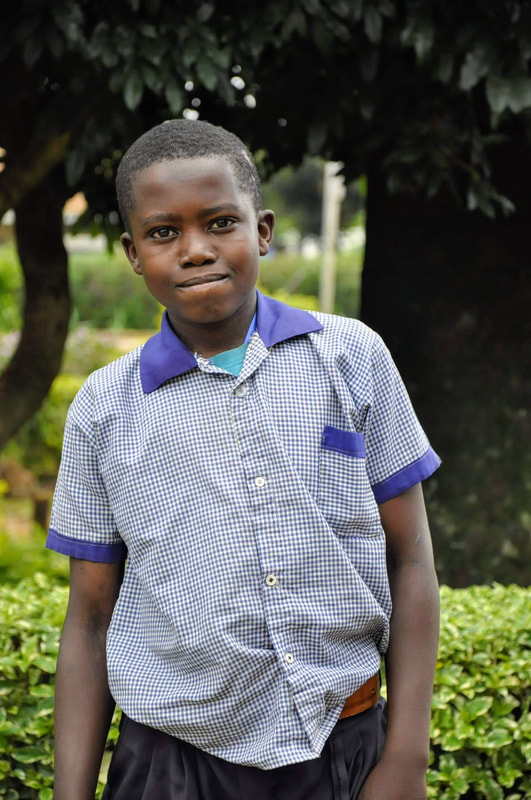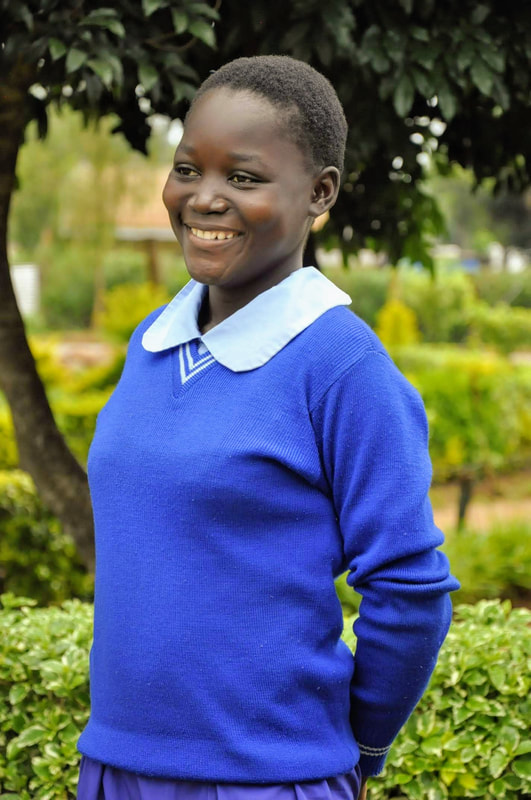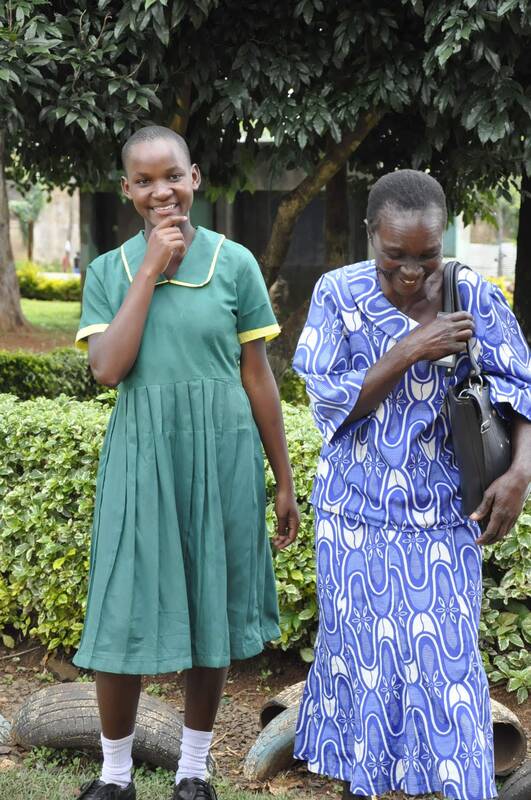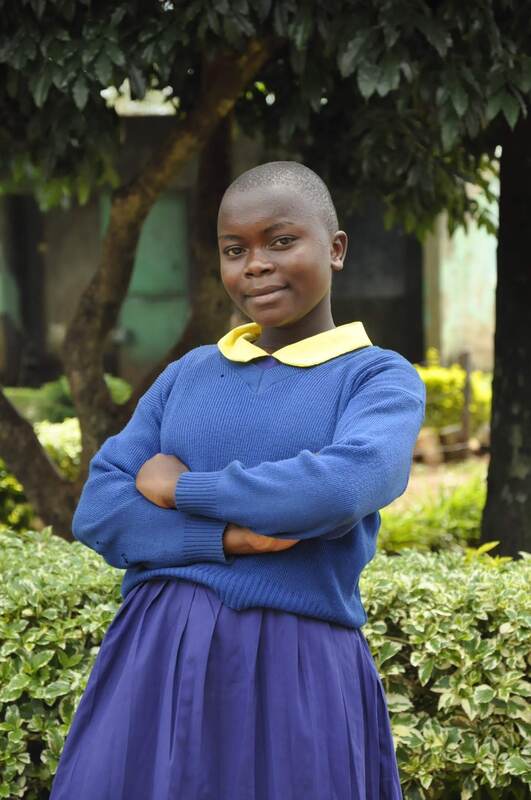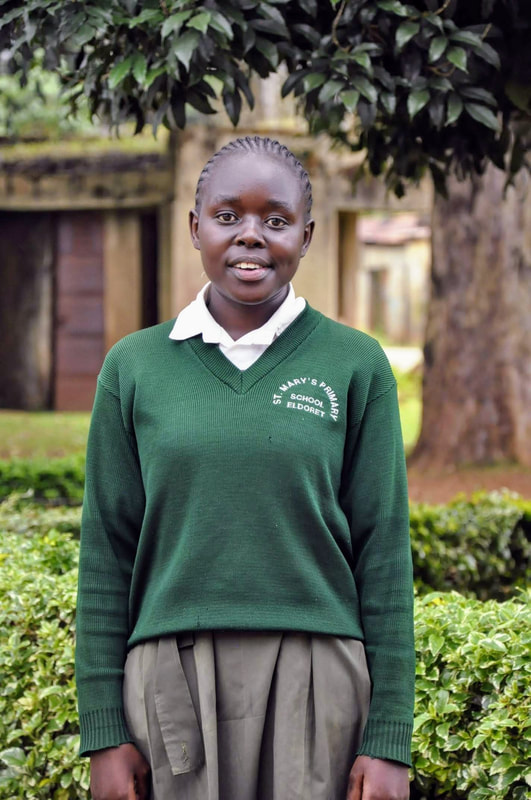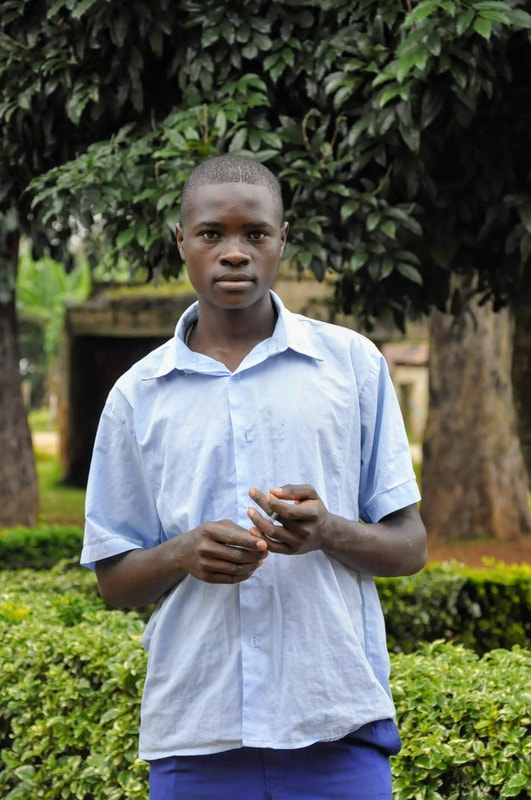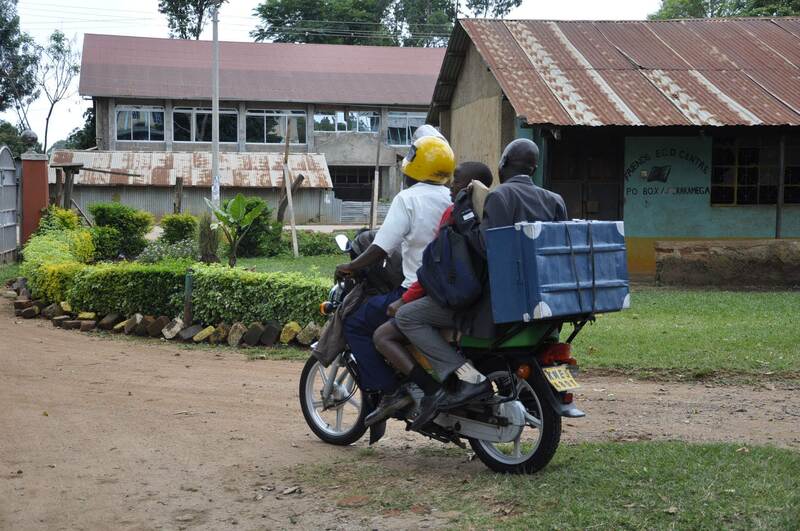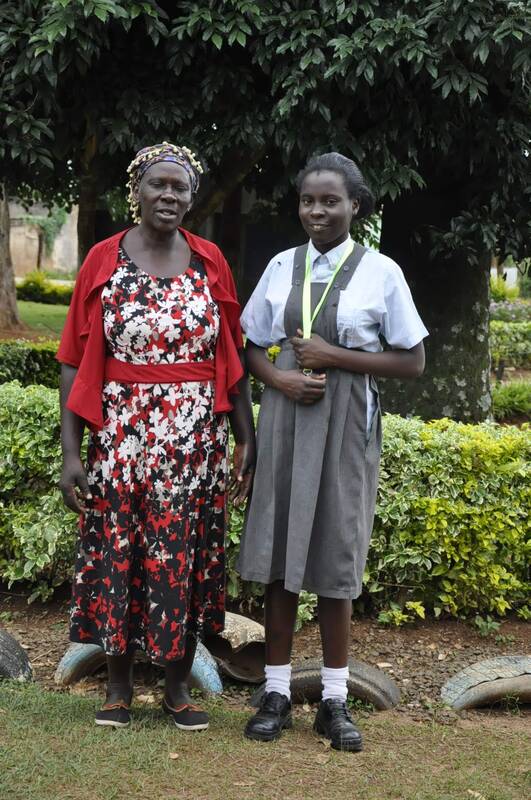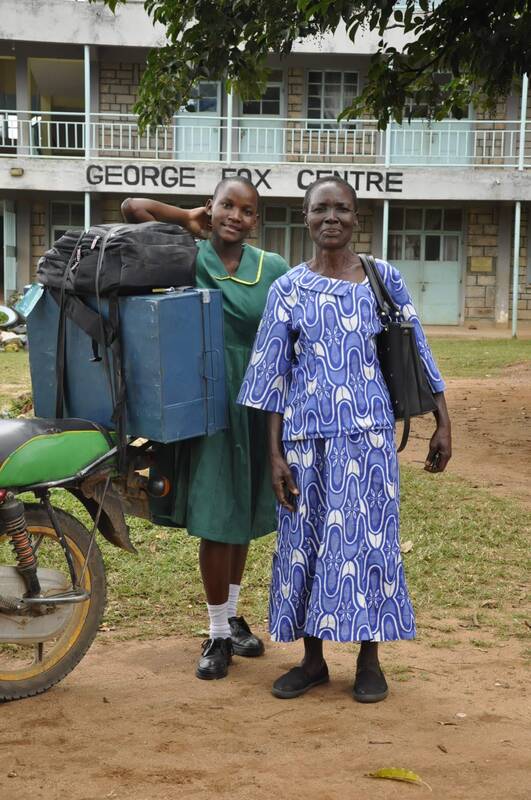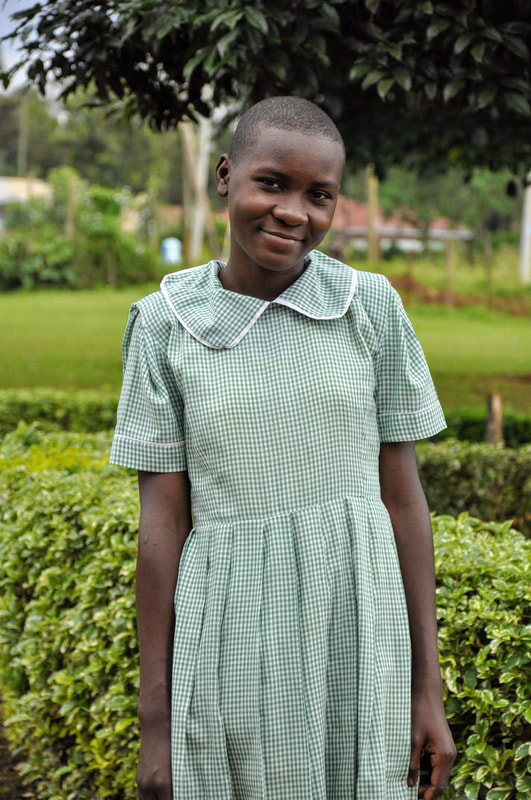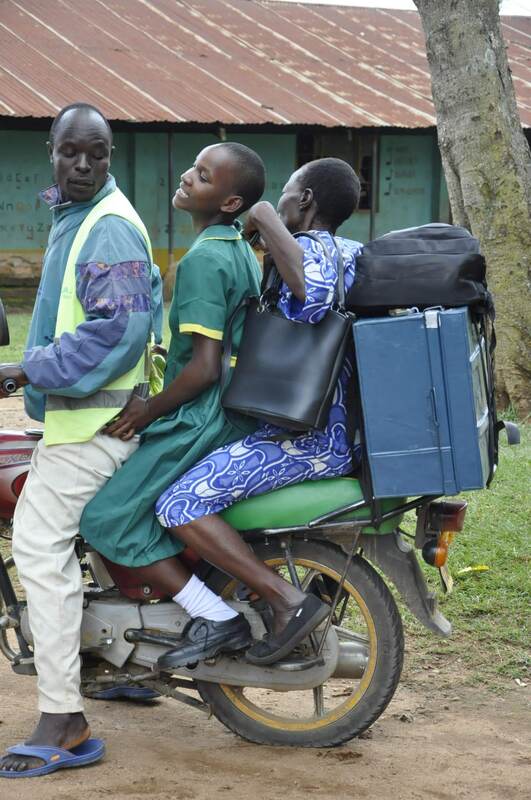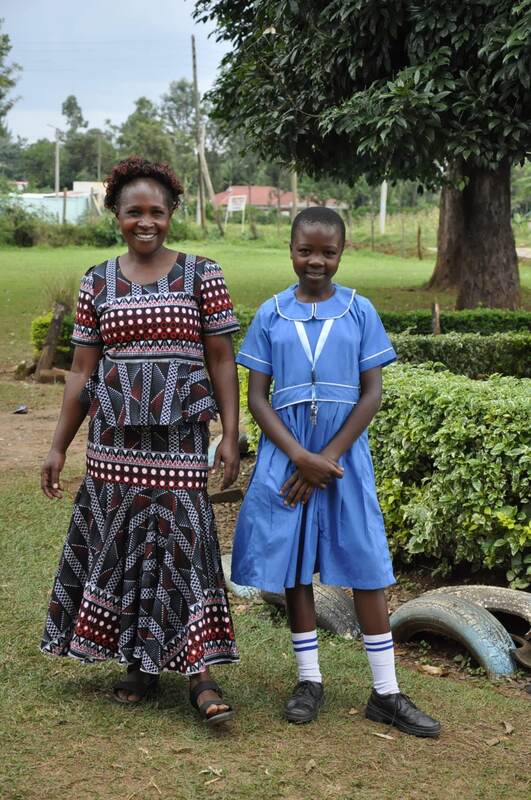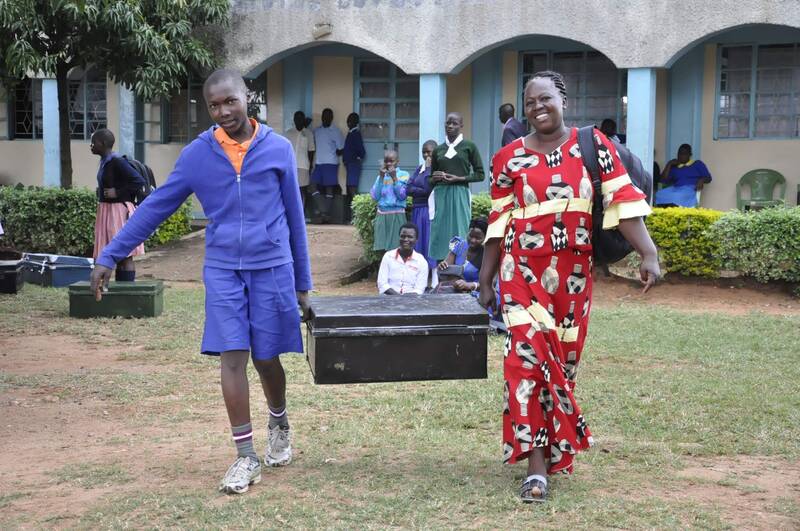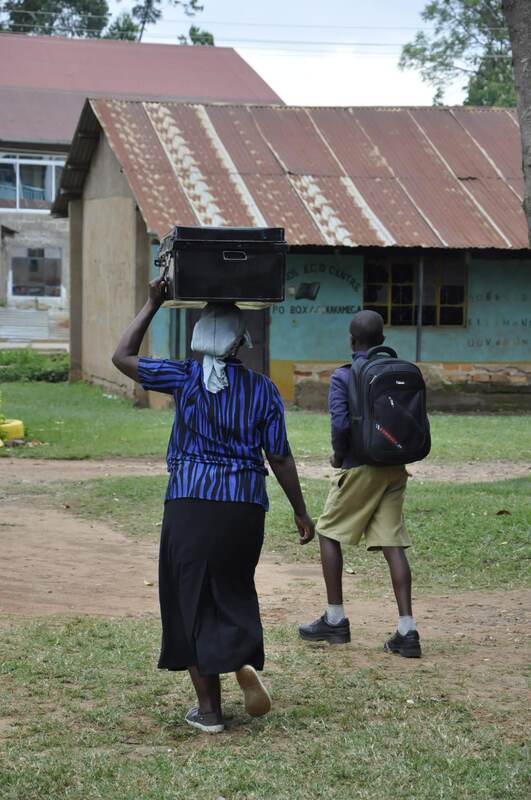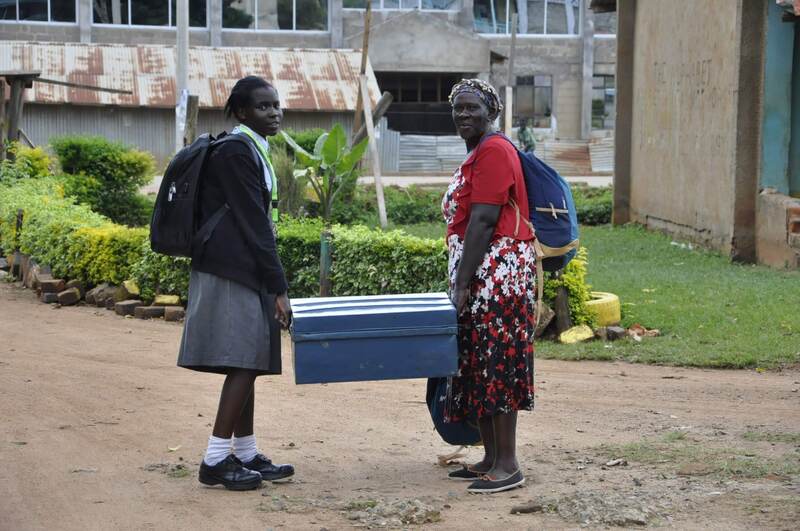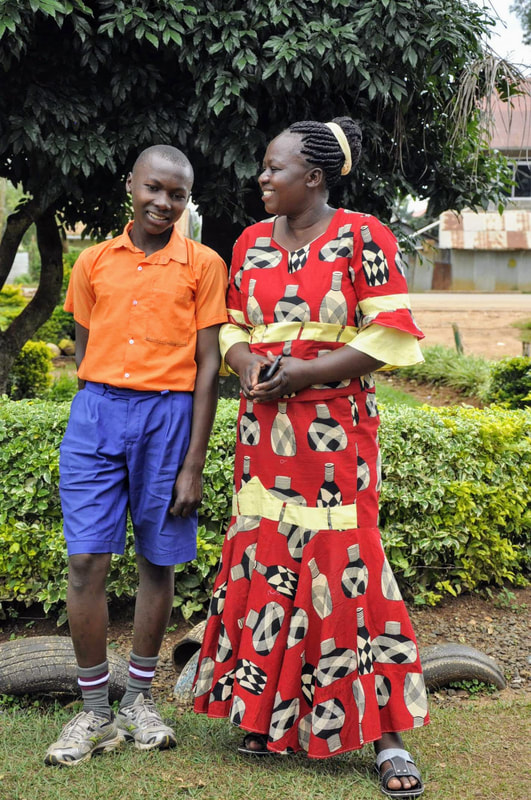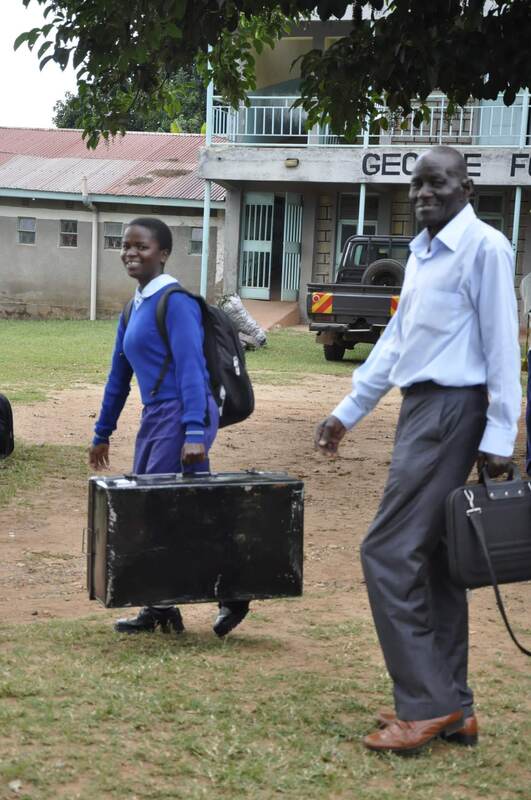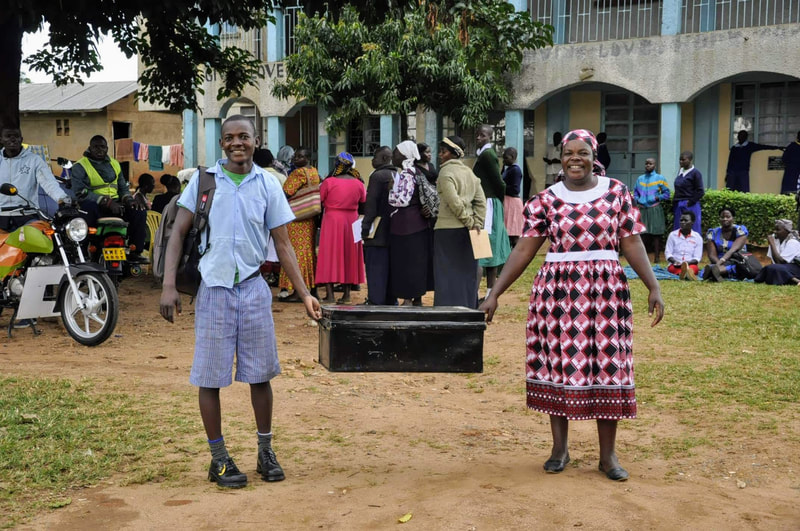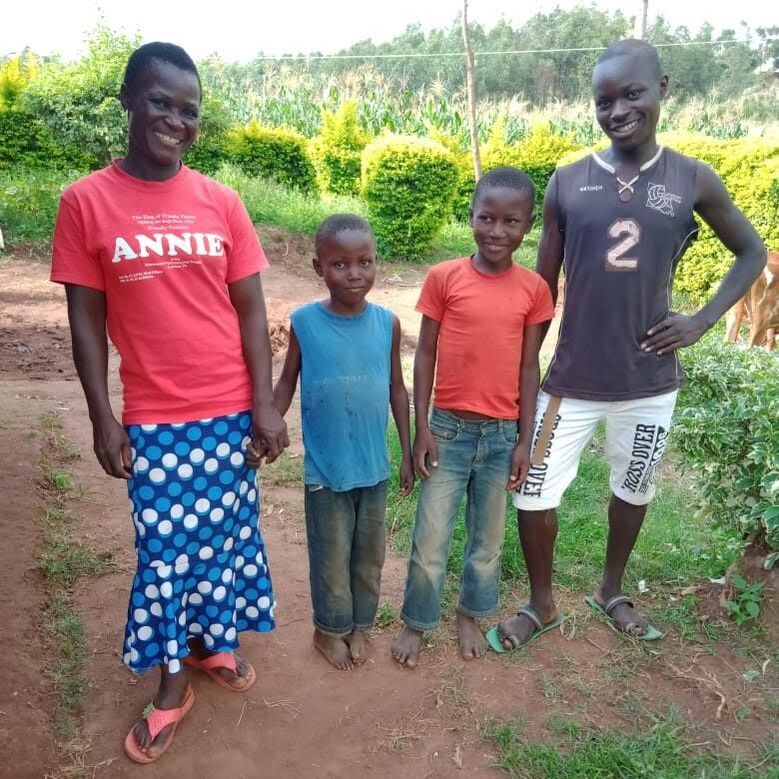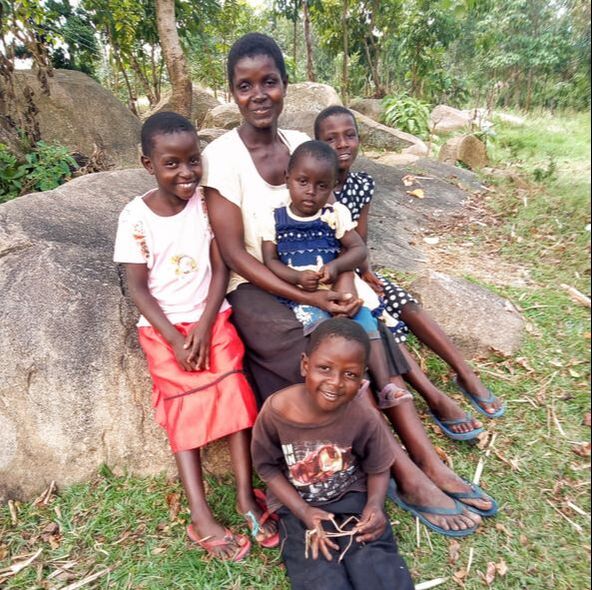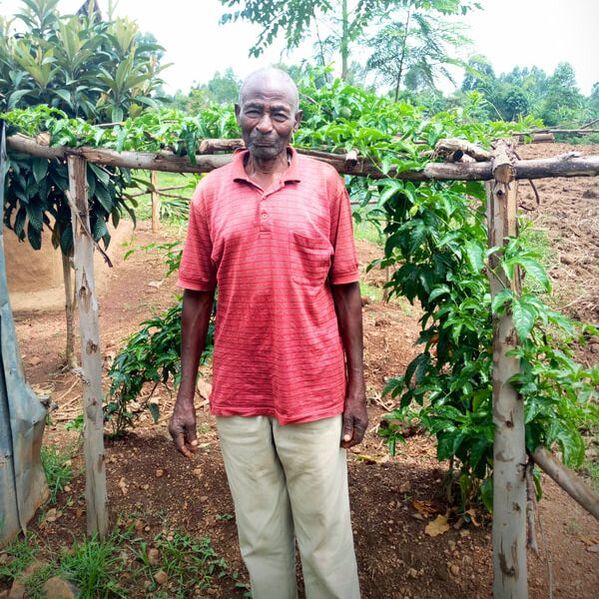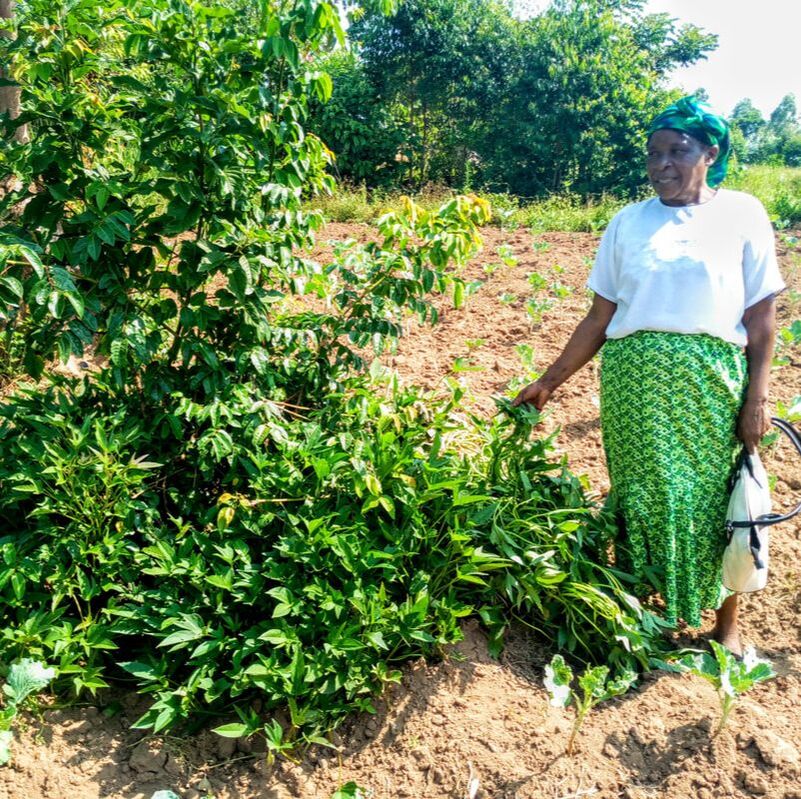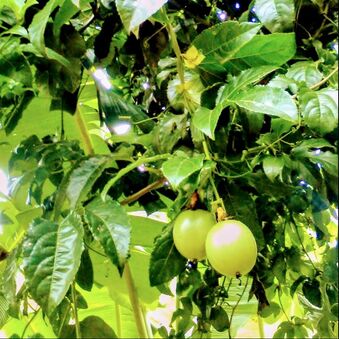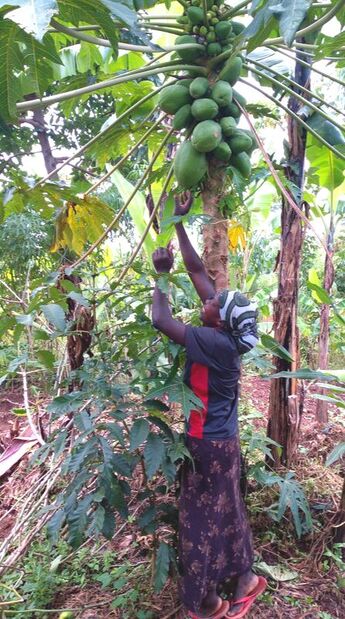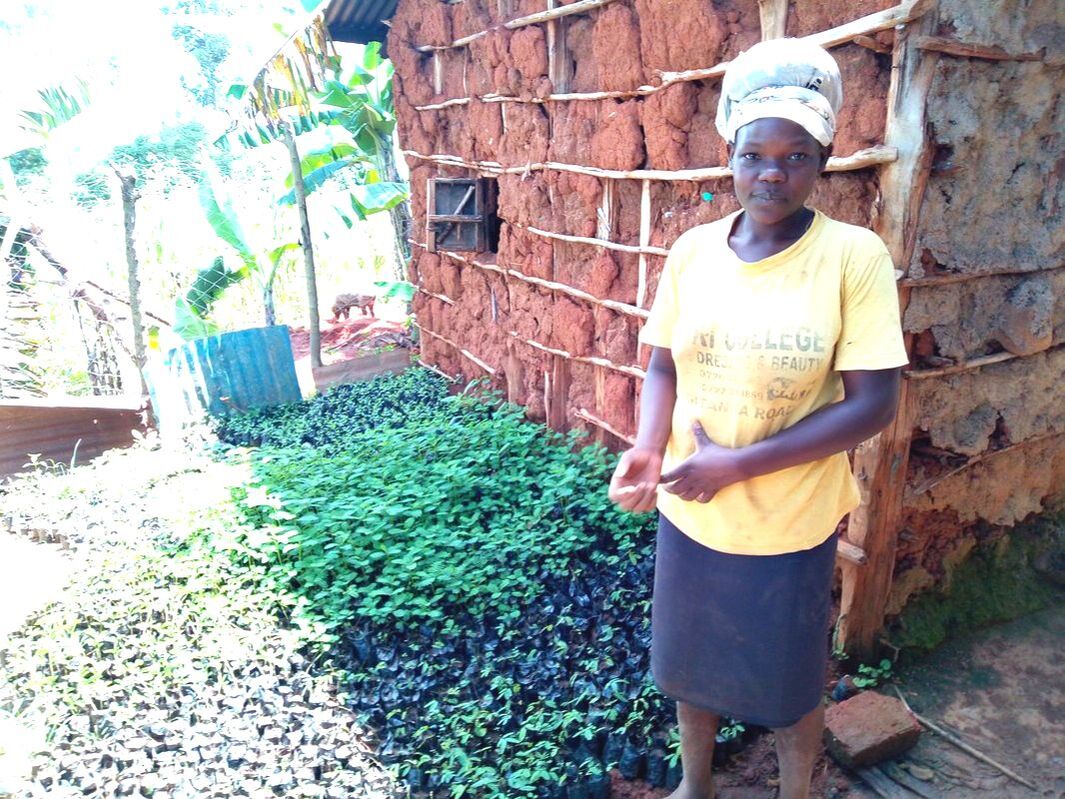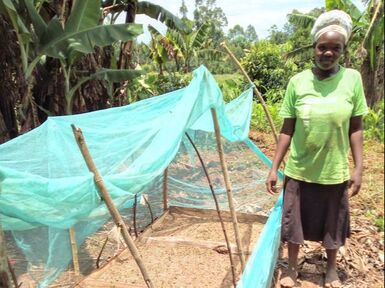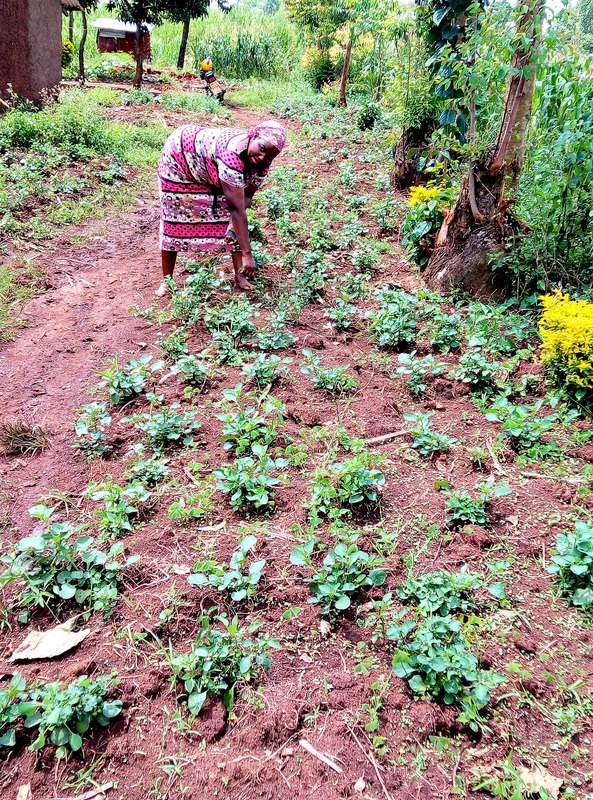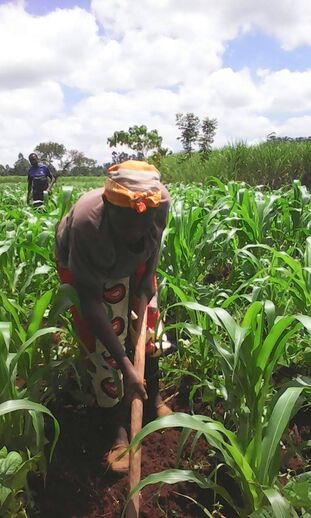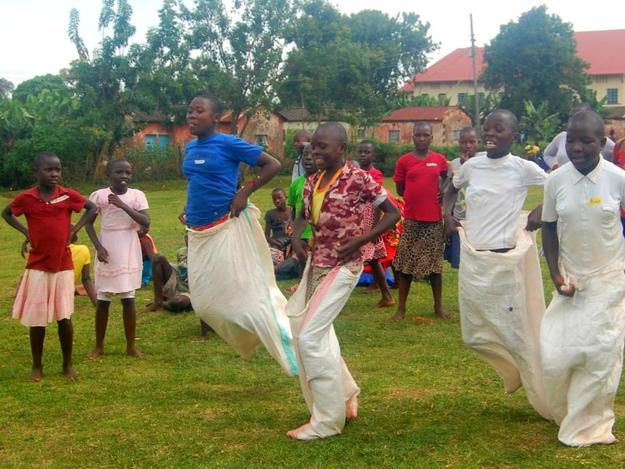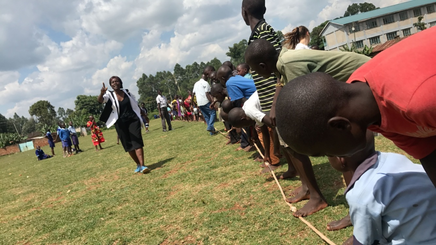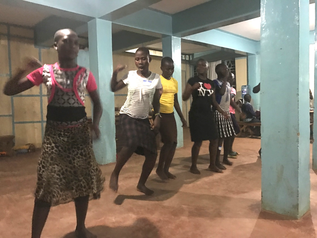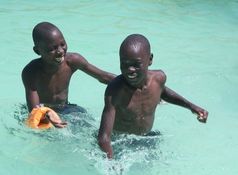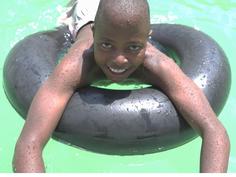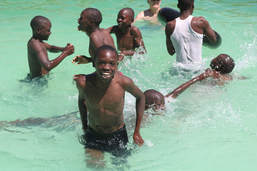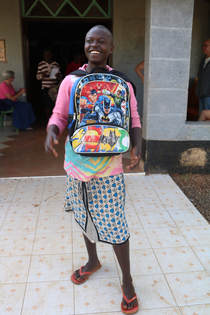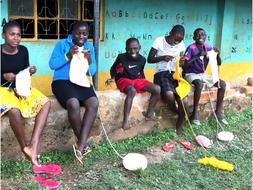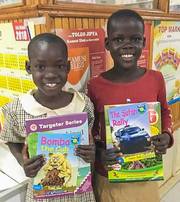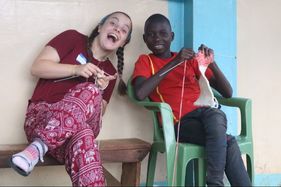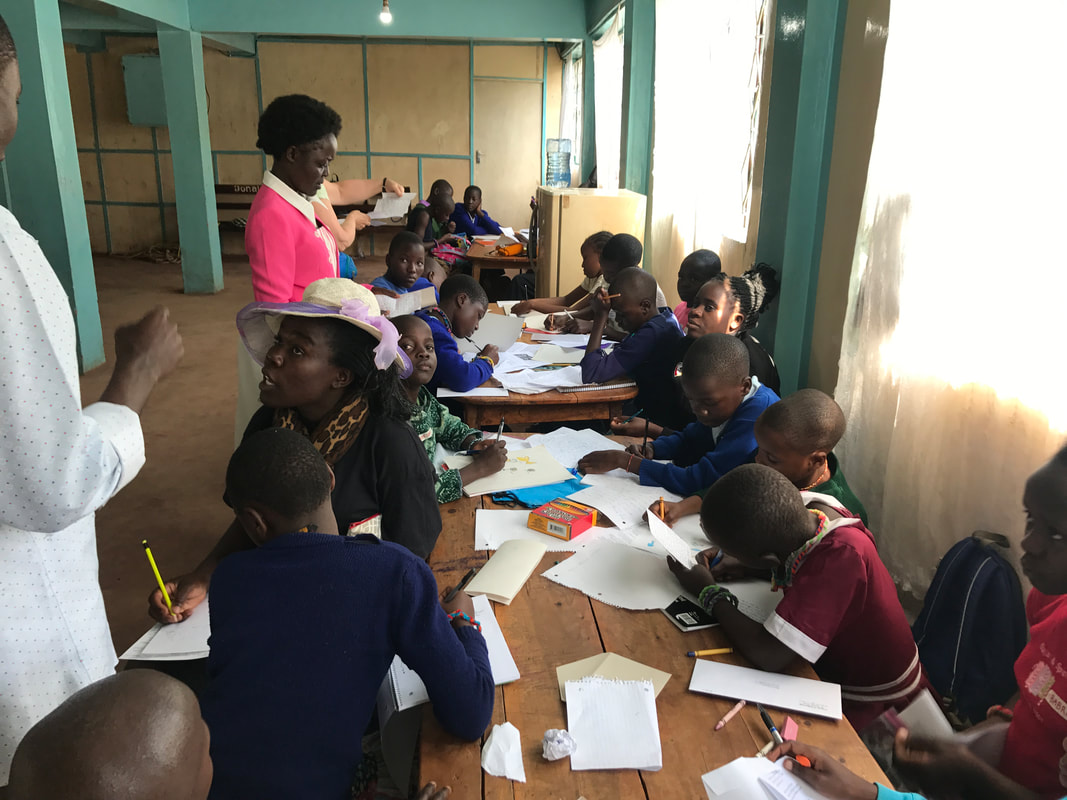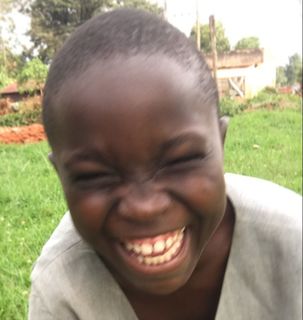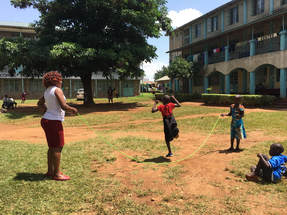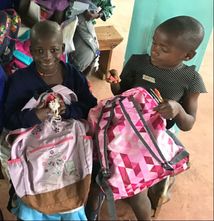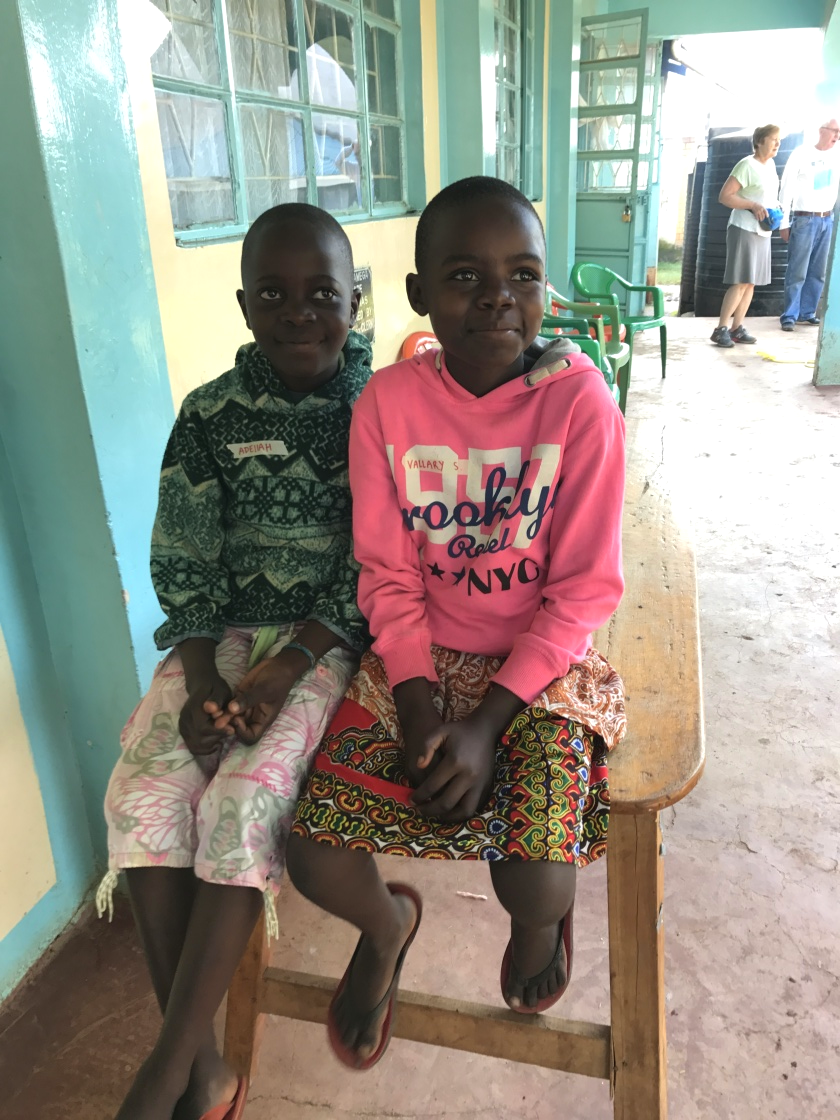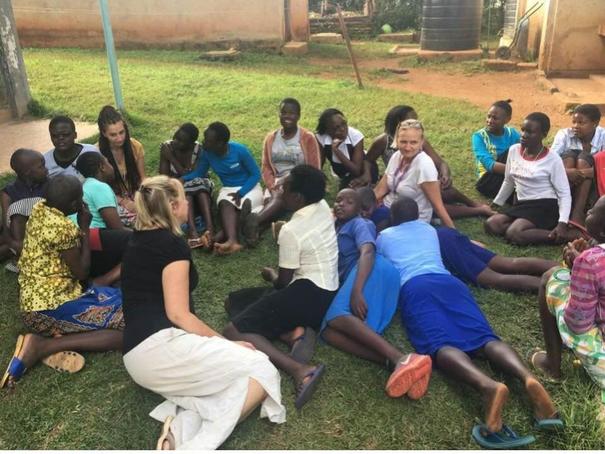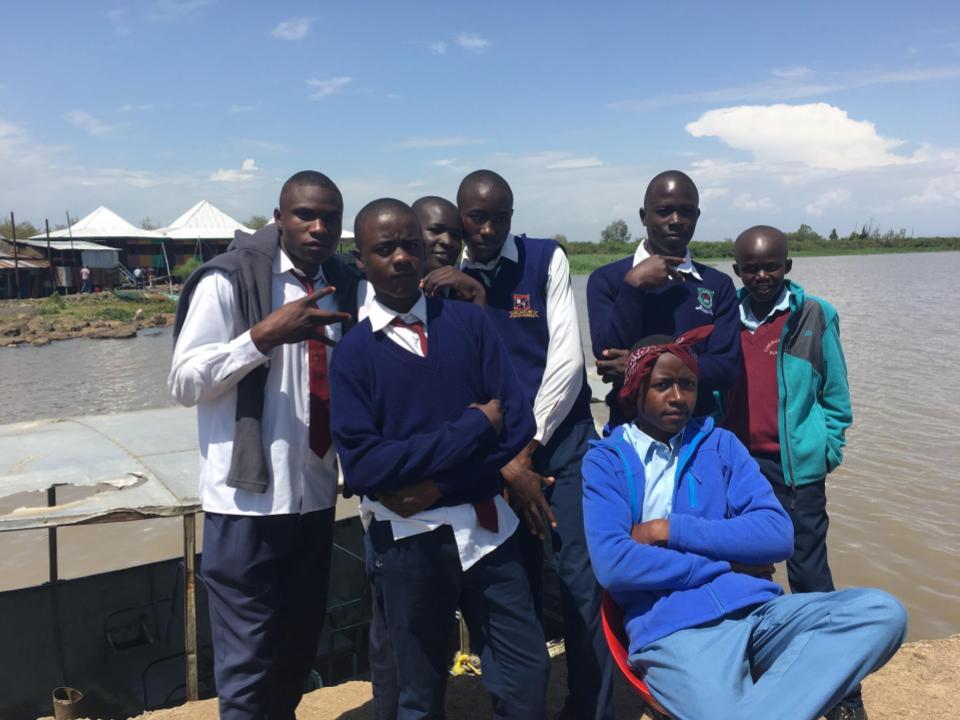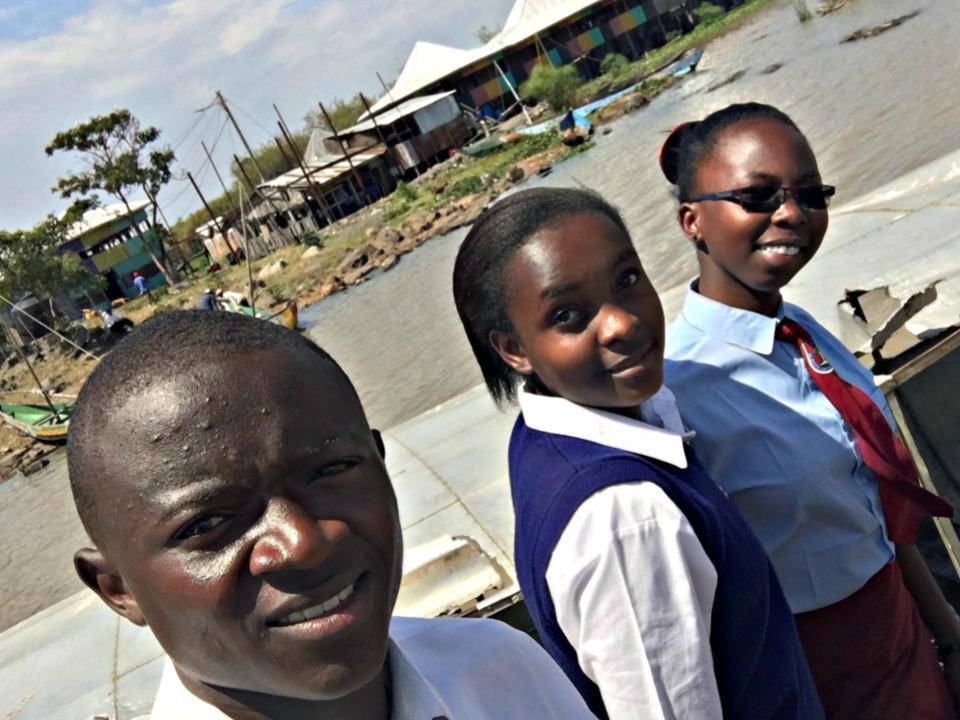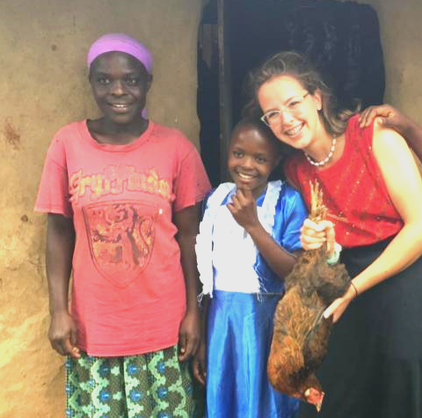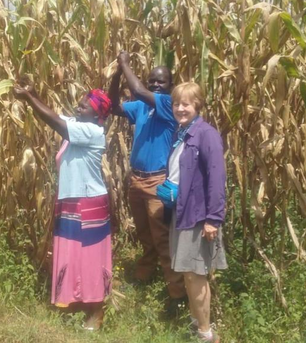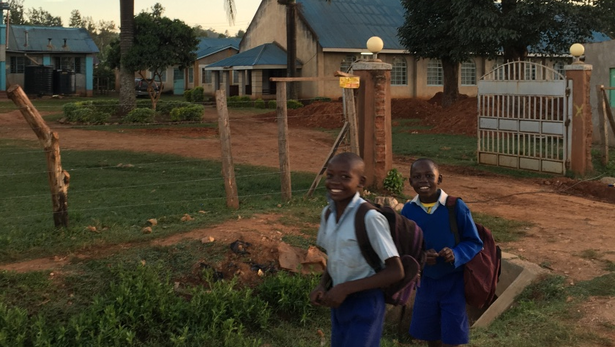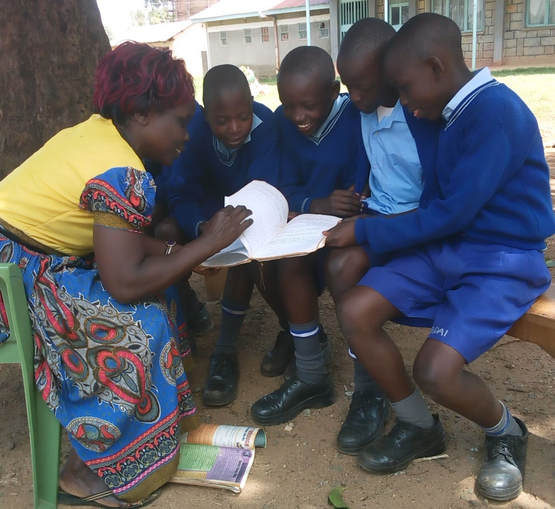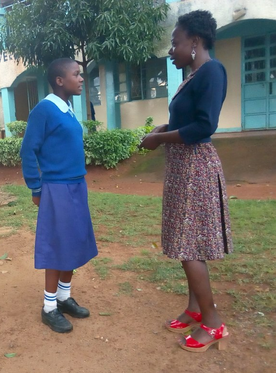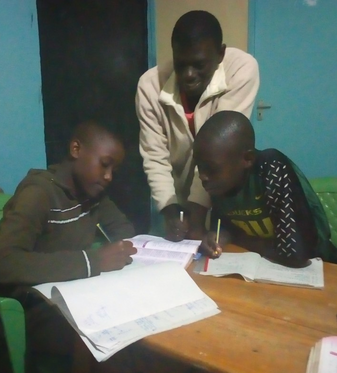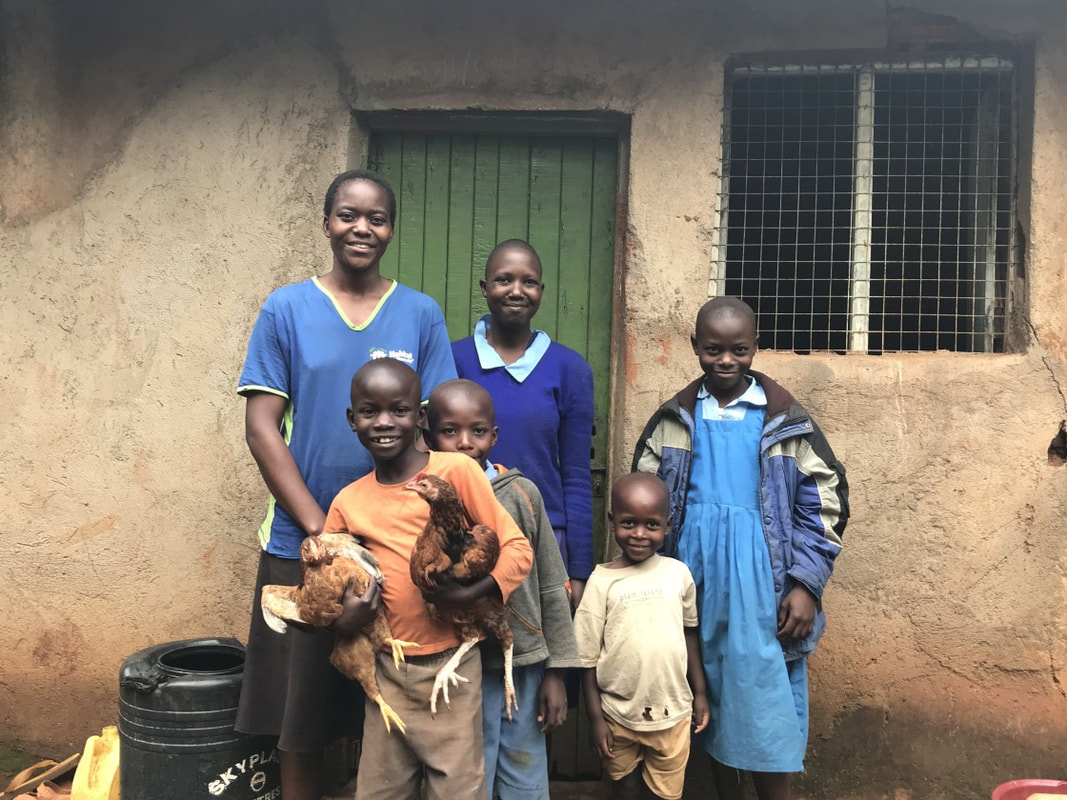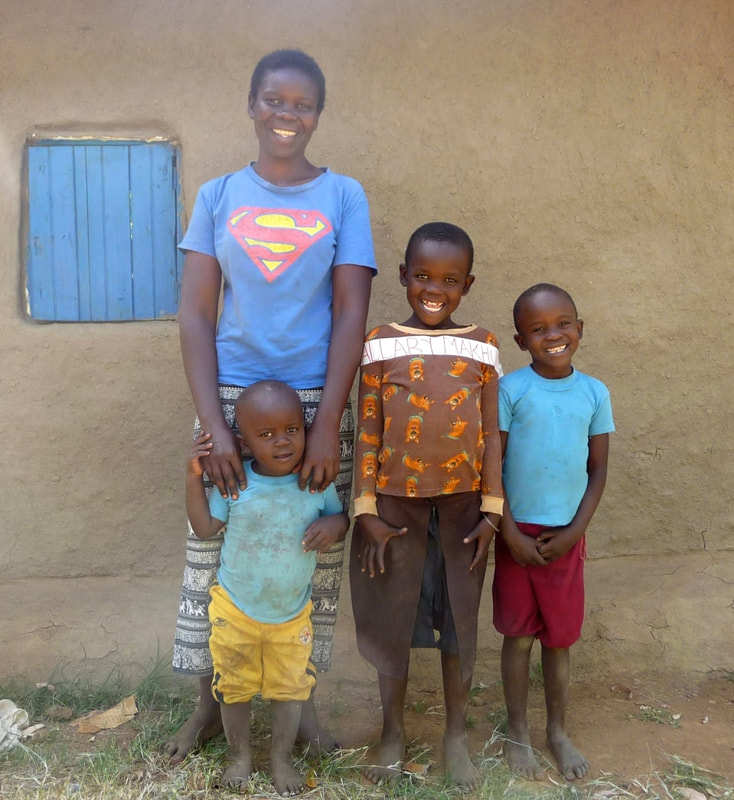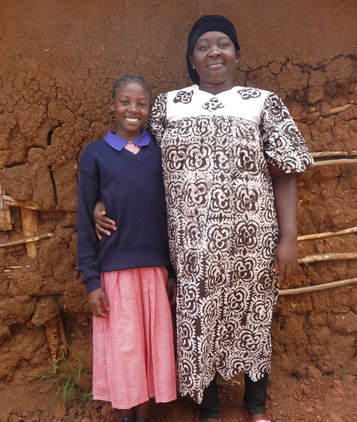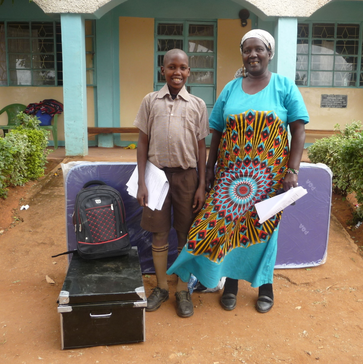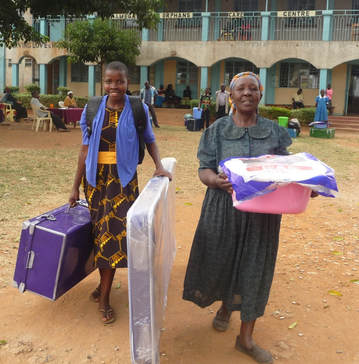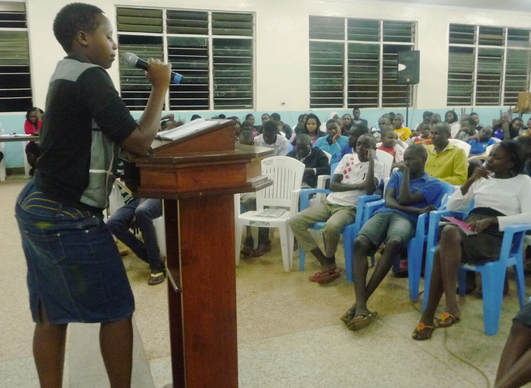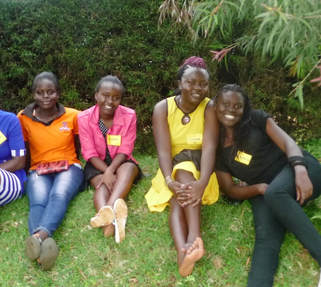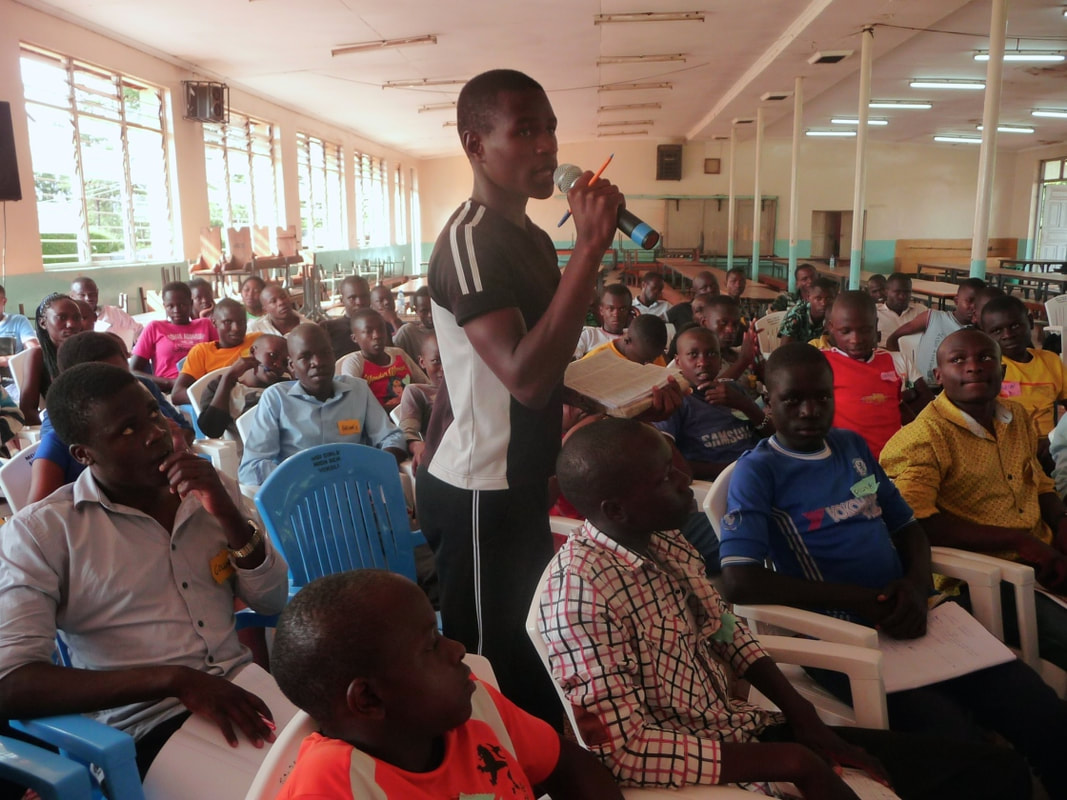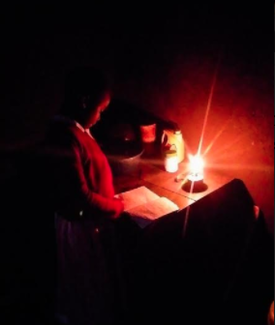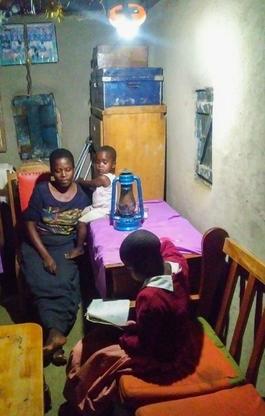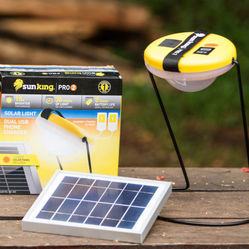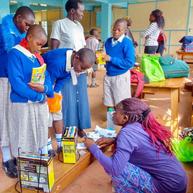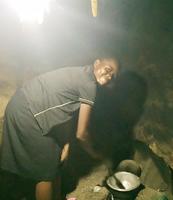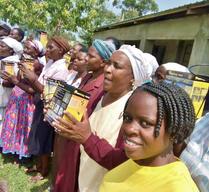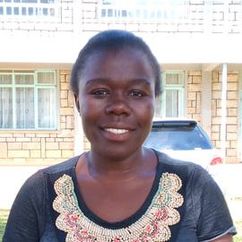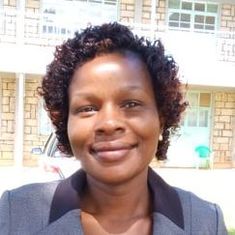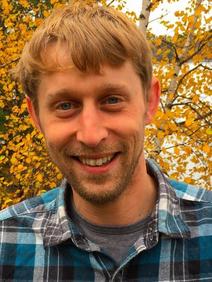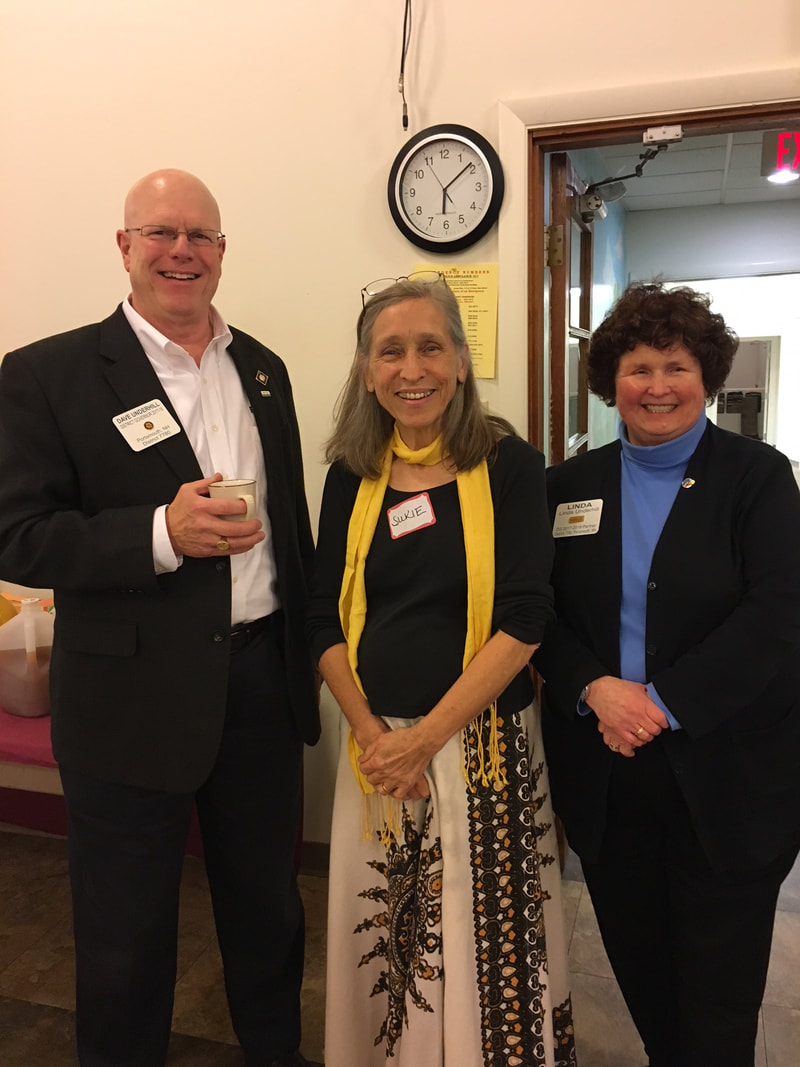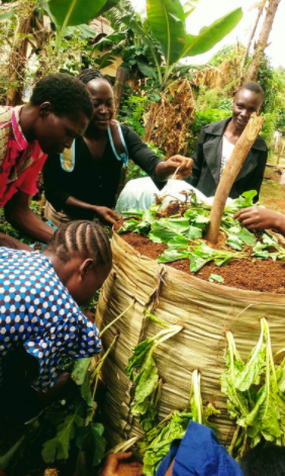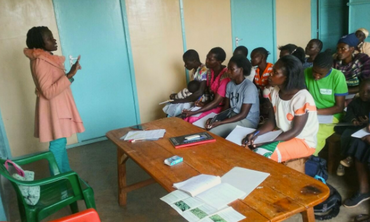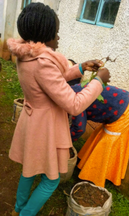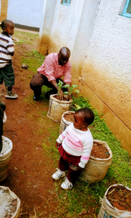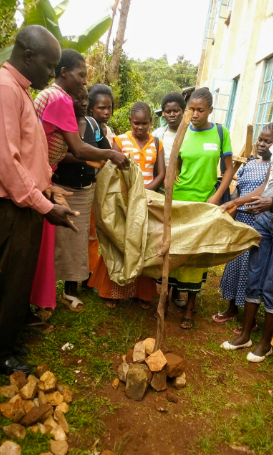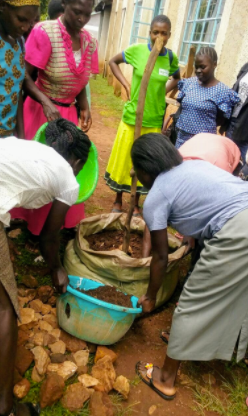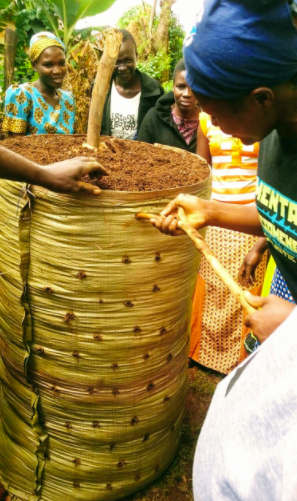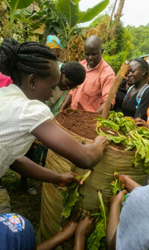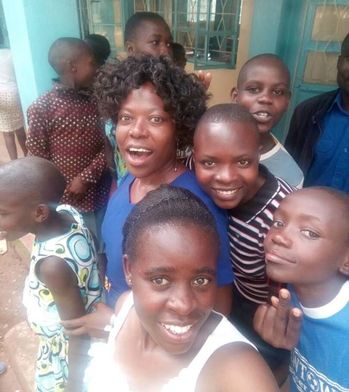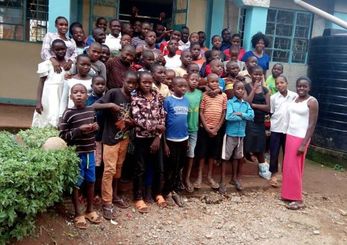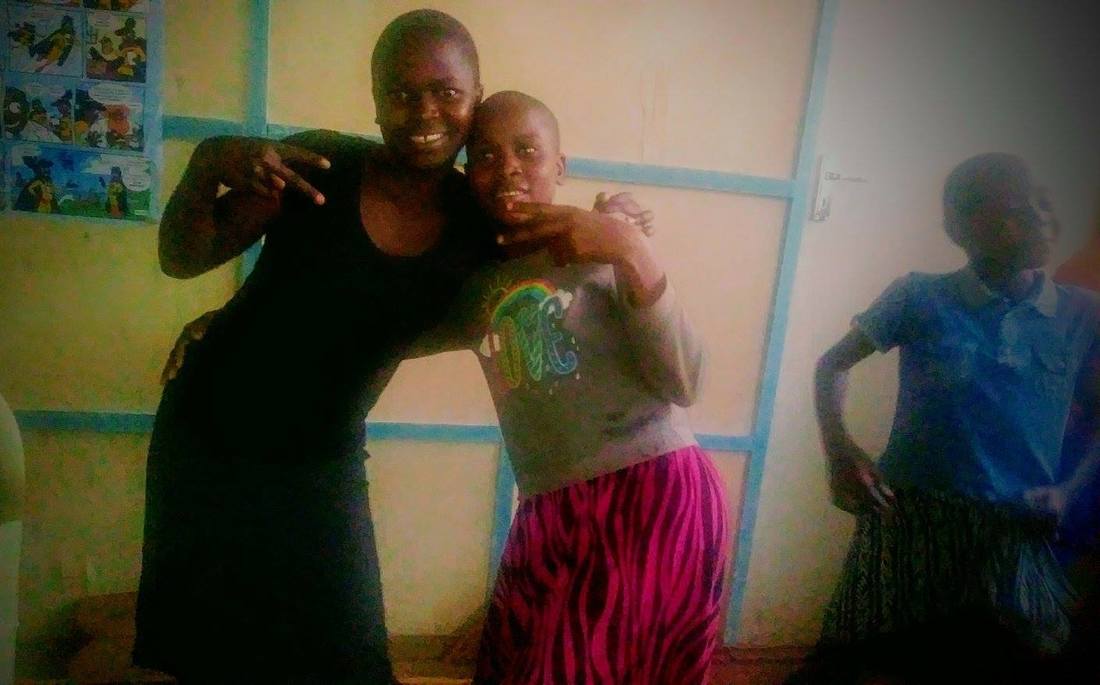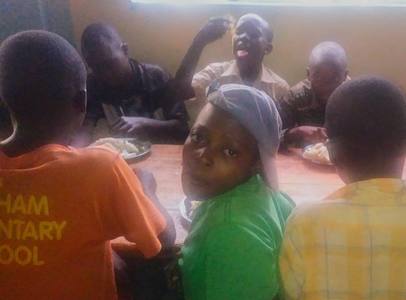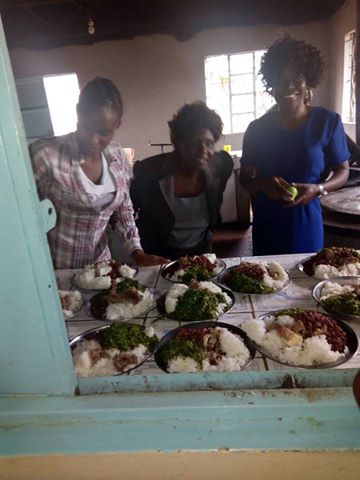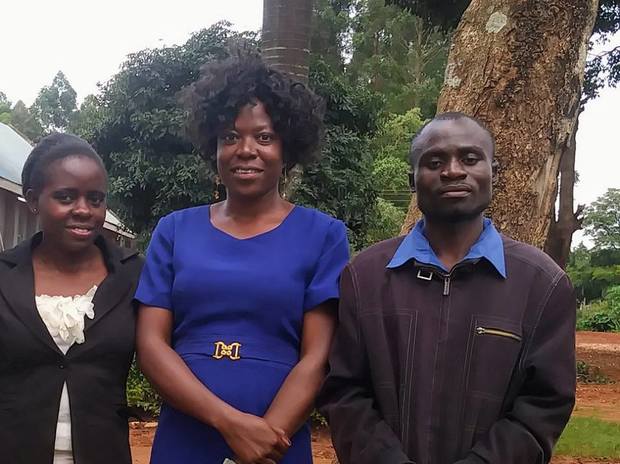|
COVID-19 Update: One Step At a Time and
No Summer Trip
We regret to announce that continued presence of the coronavirus around the globe has forced us to indefinitely postpone our plans for the annual August trip to Kakamega. Meanwhile, schools in Kenya remain closed but our staff in Kenya are now doing some essential field work as they deem necessary.
As of July 1st, 2020 there were 6,673 confirmed cases of COVID-19 throughout Kenya, with 2,089 recovered patients and 149 related deaths. The number of new daily cases is steadily increasing, and no plan for allowing international visitors has been announced. It is clear to us that we will need to wait some time before safely taking our next trip to Kakamega.
We are exploring options for the sponsor letter exchange, but, since the U.S. Post Office suspended mail service to Kenya because of lack of transportation there, it doesn’t look promising at this point. We will continue our efforts to make it happen and keep you posted if and when things change. In Kakamega, our students are studying from home and schools remain closed with continued postponements of reopening. The current discussion is about a phased re-opening from September at the earliest and moving the exams for Class 8 and Form 4 students well into next year so they have enough time to prepare. At KOCC, offices remain closed but field staff are again doing home-visits in a very cautious manner. Social workers are delivering workbooks to students and checking in on the families, while agriculture officers are following-up on recently launched youth farm ventures (see Strong Young Women article in this newsletter). Strong COVID-19 control measures in Kenya have left many Kenyans with no means of livelihood, and the families we support have been hit hard. With your support, we were able to send $38 per month in April and May, and recipients were overwhelmingly grateful. In June, July, and August, we will continue to send families $38/month to help them buy food, soap, and other necessities during a time when they cannot go about normal economic activities. Consequently, we are launching an appeal for another round of giving to the COVID-19 Fund for the June, July, and August stipends. You can donate to this effort now by clicking on the below button.
Above, studying from home, washing hands, and monkeying around with pawpaw.
December Retreat Inspires High School Students
The annual high school retreat took place at Nyang’ori High School over five days and four nights in early December. Nearly all 175 high school students supported by Friends of Kakamega and its partner Crossroads Springs Africa attended. The students learned new life skills, shared opinions in discussion groups, and enjoyed meals, talent shows, games, and conversation together. We haven't yet written about it, so we decided that now is a good time to share news of its overwhelming success.
Each morning started with a plenary session, after which students broke into small groups to dive deeper into the topics presented. The Care Centre staff handled logistics, and ten guest presenters shared their wisdom and life experience. This year’s topics included:
Since a lot of our graduates will not qualify for the few lofty careers that most dream of, such as doctor, lawyer, engineer, or pilot, the most important retreat theme was proactivity and the importance of making one’s own future instead of waiting for it to come knocking. Students were strongly encouraged to work hard and aspire without limit but also to recognize the realities of life in rural Kenya and the importance of having a plan B, C, and D should Plan A not materialize. In this vein, many of the guest speakers were people from the greater Kakamega community who have achieved success in self-employment or small business with sheer determination and a willingness to take calculated risks. They shared how they have made their living from activities that don’t require diplomas, ranging from selling boiled eggs to grafting trees and taking wedding/event photos. An anonymous survey given at the end of the 5-day event informed us that 98% of attendees agreed or strongly agreed that they learned something new, and 93% agreed or strongly agreed that they want to find out more about something they were told about. One student wrote that (s)he learned “to work on my self esteem to be who I am, and be strong during [any] storm.” Another wrote that (s)he learned to “build my confidence and build the good morals I should have in order to live well with others in society.” The retreat ended with an assembly to award small prizes and public recognition to top and most improved students and talent show winners. When students went home for the holidays, the general consensus was that this year’s retreat had been another grand success.
Agricultural Business Training Changes Lives
We continue to see exciting progress with programs that give participants a chance to change their lives by learning to farm as a business. Before the coronavirus mandates limited gatherings and travel, the newest class of 25 Strong Young Women were engaged in learning new ways of building a brighter future through agricultural businesses via workshops and site visits. Since then, they have been receiving help via phones calls and stipends to start initial micro-projects.
For five years, we have been training young adults how to reap a meaningful income from farmland, their most valuable physical asset. The new cohort is benefitting from an extended series of inspirational site visits and workshops hosted by guest speakers, exposing them to a wide variety of higher-earning agricultural activities. In the first few months of this year the new Strong Young Women group visited fish ponds, mushroom farms, value-addition processing centers, poultry farms, diversified horticulture farms, an agriculture training college, and other sites. They also engaged in workshop training for business planning and smart practices in hygiene and sanitation. The site visits and workshops are now on hold, but, when the COVID-19 crisis subsides, participants will continue to get more valuable exposure to new and higher-earning farm activities. Eventually, they will choose activities that suit them best, create business plans, and receive training from experienced practitioners in their chosen fields. To cap it off, each participant will receive a "micro-grant" as start-up capital to help start her venture, and then engage in workshops that will help her scale the businesses by connecting her with micro-finance banks and training her to plan wisely for the use of loan capital. The program is life-changing, and, although it is now running minimally through agriculture officers’ phone calls to participants, we are grateful that it has started and hopeful that it will soon resume in full force. Group training is now on hold due to coronavirus precautions, but the program continues through agriculture officers’ phone calls. And, in order to keep a strong connection and offer opportunities during the program's coronavirus-related slowdown, all participants were given $40 to begin an initial micro-project. Most are now rearing chickens for eggs and meat after receiving this boost, and some are doing other ventures such as goat-keeping or growing vegetables for sale. Our partner organization, Crossroads Springs Africa, is funding a program under the same model for young people who finished high school under sponsorship but did not advance to college. Because it has both young women and young men, this parallel program is called “Strong Young People”. Beyond the current cohorts, we are excited to announce that as part of our gradual shift to a holistic “Family Care” program model, we are working with clubs from Rotary International to explore the possibility of offering this training to the guardians of over 150 families supported by other Care Centre programs. Largest-Ever Class of 33 New Form 1's
This January, we sent off our largest-ever class of 33 first-year students to high school. Our partner organization Crossroads Springs Africa supported 15 more. KOCC and its sponsors now have 48 Form One students, a truly incredible achievement we never dreamed of in the early days of our organization.
We extend our gratitude to sponsors who are paying the way, to the KOCC staff who have worked tirelessly to help these students be the best they can be, and to the students families for providing them with the motivation and encouragement they need to work hard towards a better tomorrow. Currently, these Form 1 students and all the others we support are at home doing their best to continue studying while schools remain closed. Many report that food is scarce and other necessities are unaffordable during this time, and we are doing our best to assist them. You can help us support all the needy people in our programs including these students and their families by contributing to the Relief Fund through the button below.
1 Comment
Happy 18th Birthday to Friends of Kakamega!
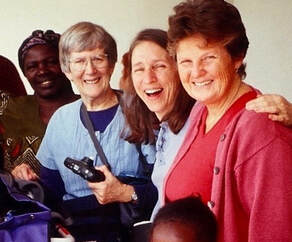
Friends of Kakamega turned 18 this month! It's been a long journey, and we're really growing up. On May 1st, 2002 - a full eighteen years ago - the first Friends of Kakamega meeting was held. Founders Sukie Rice, Sharon Salmon, and Molly Duplisea met on that day and formed a partnership with Dorothy Selebwa and the United Society of Friends Women in Kakamega.
They named the new organization Friends of Kakamega, and within a few years the free meals program included a dining hall, then a residence, then something much greater that reaches deep into the grassroots of rural communities. Since that time, and with your help, we've supported hundreds of young people in school and assisted nearly 2,000 people including all family members. Happy 18th birthday to us!
Kenya COVID-19 updates
Kenya now has over 750 confirmed Covid-19 cases. The relatively low number is a result of strict curfew, mask and sanitizer requirements, travel restrictions, neighborhood lockdowns, and the closure of schools, churches, open markets, and most shops. A lot remains unknown, including how long schools will remain closed. What is known is that the economy is tumbling and most families’ usual means of getting by is no longer providing.
With most means of livelihood in Kenya shut down and staple crops still far from harvest time, many families are struggling to buy food and other essentials. Last month, we sent out a call for support so that we could send $38 to the 200+ families in our programs, roughly enough for a family of five to buy one meal a day (plus soap) for a month. You responded to our call, and we want to say thank you.
94 donors responded with $12,056 in giving, and we sent $38 to all 213 of our students and their families. Having exceeded our goal and partnering with a few generous folks to help us bridge the gap, we are pleased to announce that we plan the same $38/family transfer in early May.
Click on photo below to see arrows and navigate slideshow.
Family Care for Greater & More Sustainable Impact
All of the children and students we support live within families. There are usually several siblings or cousins in each home, and the guardians include single parents, aunties, uncles, grandparents, and sometimes both living parents. Our programs have always supported these entire families to some extent, and we will be focusing even more on families in the future.
We have provided solar lights to help all children study and make family life easier with electric light. We have given families improved cookstoves to reduce indoor air pollution and improve the health of all. Our Homebased program gives a small cash stipend to help guardians pay school fees and buy requirements like uniforms and text-books; this money helps all children in a household, not just the one who is sponsored. The seed and trees projects help entire families eat healthier diets. As we evolve, in unison with our partner Crossroads Springs Africa, we are focusing more and more on helping families rise above poverty together. We are adapting to changing circumstances, because Kenya's economy has grown and the government now provides more funding to public schools, reducing the cost of fees paid directly by parents and other guardians. While the orphan crisis driven by HIV/AIDS has decreased significantly, poverty has stubbornly remained, particularly in rural areas of Kenya. While school fees are decreasing, the costs of required learning materials are as high as ever and this still keeps many children out of school. Roads have improved and electricity at rural homesteads is now more common, but this economic growth is highly unequal and the poorest have been left behind by the rapid change in wealthier neighborhoods of cities and towns. As we grow and learn as an organization, we are seeing that our support to individual students will one day end, but the support they get from their families lasts forever. Moving forward, we plan to strengthen our programming by making it more family-oriented, so that stronger families can help each other and the impact of our work becomes even more sustainable. We will continue our educational emphasis while helping more people rise up from difficult situations and find their paths to a better future. As students graduate from school and as families graduate from our programs, we will be able to reach even more people in need. We are not asking sponsors to multiply their contributions, but we are asking them to understand this shift that multiplies their impact on the ground. Together we have been transforming communities and creating a better world. In the months and years ahead, you will hear more and more about a "family care" model. We will start sharing with sponsors and donors not just updates about individual students, but also about the entire families which already benefit as a whole. We will put greater focus on helping families earn higher incomes and grow more healthy food. We will work even harder to provide families with information about any outside resources available from the Kenyan government, other nonprofits, social enterprises, and faith-based groups. We have been subtly talking more about families over the last year or two, and we will be increasingly direct as we talk about families in the future.
Click on a photo below to see arrows and navigate slideshow.
Fruit & Fertilizer Growing on Trees
The Trees Project was launched late last year to provide seedlings of fruit and soil-conserving trees to all the families supported by Friends of Kakamega. In the coming months and years, the impact of this once-small initiative will become greater as the trees planted grow bigger. 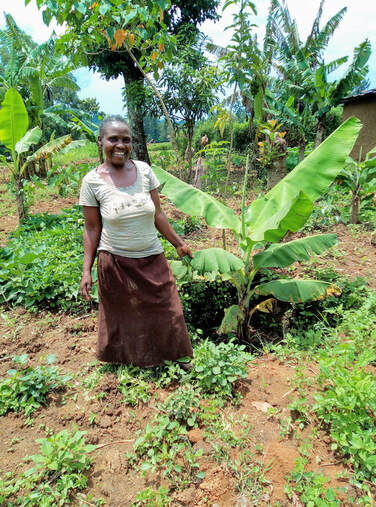
Already, some families are seeing the papaya and banana trees they planted come close to bearing their first fruits. Orange, lemon, soursop, and avocado seedlings are growing stronger and requiring less care. Passionfruit vines are climbing high and some are already producing
For some families, trees are thriving, but for others a number of seedlings have died. It is a numbers game, after all. We are not giving up and we intend to provide interested families with another round of fruit tree seedlings later this year. In the lush climate of Kakamega, year-round production of nutritious fruit is possible for families that successfully nurture to maturity twelve or thirteen different species that range from the most common (bananas and avocados) to some that are quite rare (jackfruit, soursop, and waterberry). Ultimately, we hope to see all our families harvesting more than a dozen types of fruit to bring them better nutrition from what they consume, and greater income from what they sell within their communities. Alongside improved or grafted fruit tree seedlings procured from certified vendors, KOCC assisted and trained ten families so they could set up nurseries of soil-conserving trees. Thousands of seedlings sprung up and have since been planted, and these ten families are working hard to continue these nurseries as small business ventures. In total, we know at least 5,500 tree seedlings that were shared from these nurseries among the families in KOCC programs. As these seedlings grow, they will shed leaves that are rich in nitrogen and improve the fertility of depleted soils so that family farms can produce more food and income in the future.
Seed Project Helps Families Improve Food Security
The Seed Project provides over 150 Care Centre families with agriculture training, seeds for nutritious but less-common vegetables, and a stipend to buy government-subsidized fertilizer.
This year the Care Centre managed to hold introductory workshops in the village regions. Although further workshops have been paused since mid-March because of coronavirus precautions, guardians have been receiving regular phone calls from agriculture officers Alfred Kitayi and Dennis Mutimba, who provide further education and encouragement on the phone in lieu of workshops and home visits. Apart from training on best practices for their staple crop maize, families receive advice on a large variety of more nutritious foods that they can grow at their homesteads. These range from carbohydrates and legumes like cassava, millet, lentils, and beans, to vegetables like butternut squash, pumpkins, carrots, and several indigenous leafy greens. Rainfall patterns have been unusually erratic over the last few months, and the families' traditional focus on maize alone is even less likely to provide a good yield than it has in the past, which makes growing more diversified and healthy foods even more important. Most families we support are used to eating only two meals per day, and most of those meals lack the essential vitamins and nutrients that children need to grow strong and healthy so they can focus on education and a better future. This essential project tries to ameliorate that situation, and it is one of the most important things we support KOCC in implementing. The Seed Project's costs are not fully included in annual sponsorship dues, and the initiative is one the largest expenses we have that doesn't have specific financial support from our sponsors. As such, we may occasionally ask for contributions towards this worthy cause. If you wish to support it now, please give through the special button below. We send greetings to you, our supporters, during a very difficult time, hoping that this finds you well and safe. Since you are likely concerned and wondering about the COVID-19 situation in Kenya and the Care Centre (KOCC), we send you this update. Kenya COVID-19 updates As is happening everywhere, the Republic of Kenya is facing a crisis because of the COVID-19 virus. At the writing of this newsletter, there are 142 confirmed cases in Kenya, but numbers are rising each day, and many fear that this is just the beginning. Health systems in Kenya are much weaker than in the United States, making it all the more important to contain the spread before it moves more quickly. Over the past few weeks, the Government of Kenya has closed all schools and universities, banned public gatherings, limited funerals to 15 people, and prohibited communal worship at churches, mosques, and temples. Non-essential workers must work from home. Restaurants can only serve to-go food, market centers are shut down, bars and clubs are closed, and public transport vehicles must maintain empty seats between all passengers while passengers must wear face masks. All villagers have been required to set up hand-washing stations at their homes (a bucket with a tap). The most extreme measure is a strict curfew ordered by the President from 7pm to 5am. 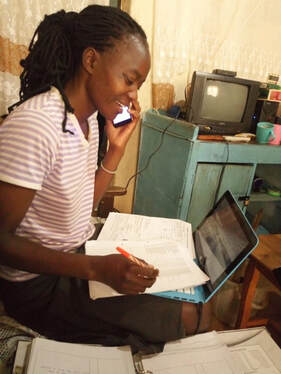 Care Centre COVID-19 updates There are not yet any confirmed cases of COVID-19 in Kakamega or elsewhere in Western Kenya, but the Care Centre is not taking chances and has shut down its offices. All children who live at the Centre returned home to their villages and families in mid-March when schools closed. Staff are working from home via phone and laptops as best they can. Social workers and the high school department are calling all guardians to help them understand and deal with the challenges of the pandemic, including guidelines to follow to avoid the virus, and to offer advice and support. Agriculture officers are calling families to check-in and advise them regarding their farming endeavors. Primary and high school students are studying from home, doing their best to focus and learn despite lack of instruction and guidance from teachers. Families are planting and tending their farms, hoping and praying for a good harvest. The economy is at a standstill, and family guardians' usual economic survival efforts are greatly threatened now and in the immediate future. Nelson Ida, the Care Centre’s Administrator, explains that it is confusing and difficult for people to stay at home since they normally go to markets daily to purchase food, and most have no means of storing food safely at home. Many people earn a living by doing casual jobs (earning around $1 to $3 per day) and running small businesses (like selling vegetables). But with things at a stand-still, they have no source of income. Many of the families we deal with live at a great distance from medical facilities which are ill-equipped to deal with a crisis of this scale. Everyone makes sure to be home well before dark, observing the night-time curfew since ignoring it can result in arrest. This is a difficult time for all, but somehow people in Kakamega maintain hope, as they always have, that a brighter future will soon come. At the moment, however, many of the children and families we support are sleeping hungry and lack funds to buy soap. As such, we will be using organizational funds in ways we were not expecting, specifically, we will soon be sending $38 to all 235 sponsored students’ families to help them buy a month’s worth of food and soap. We are asking you to help us with this. Donations we receive now are more important than ever to the well-being of the children, young people, and families of the Care Centre community. Donate online to COVID-19 family relief through the red buttons at the top and bottom of this post (bank transfer, credit/debit cards, and PayPal accepted). Checks can be sent to: 51 Hunter Rd, Freeport, ME, 04032. Even in these uncertain times, great progress has been made in this project. Keep your eye out for our regular newsletter in a week or two, containing lots of wonderful and encouraging news updates on KOCC's work in Kakamega. 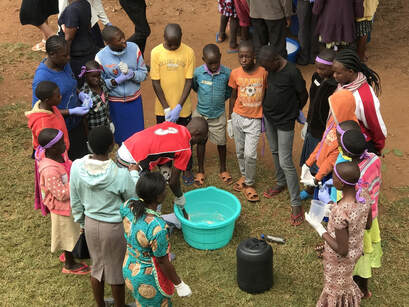 Dear Sponsors, Once again, the summer trip to Kakamega was incredible. Summer camp keeps getting better and better. This year, five camps ran back to back, and nine trippers, (ages 19 to, well, our mature years) got to spend time with 250 children who came to the Kakamega Orphans Care Center (KOCC) for overnight camps. The camps were a marvelous time for children to reunite with old friends, make new friends, sing, play, dance, and have many new experiences. The Kenyan staff at the Care Center worked long hours planning and preparing before camp and executing a great number of activities during camp. Soap-making was one of the special camp activities (see photo). Experts guided the children through the process of liquid soap- making, and every child went home with two bottles of soap for their family. Each child also received two Hass grafted avocado trees which will produce fruit in only two years rather than the usual four to seven years. These, along with over a dozen more fruit trees that are being given to families in September, were paid for by sponsors’ donations. KOCC Farm Programs Manager Alfred Kitayi provided tree-planting demonstrations and information about the nutritional value of avocados at each camp. Trippers are always struck by how children attending greet every moment with joy and appreciation - the three mile walk into town to buy a book and snack, a soda pop at the last dance of camp, the interactions and conversations with Kenyan and U.S. adults during chess or puzzles and field games, such as tug of war and soccer. The children LOVE the great soccer matches at camp and appreciate having soccer balls and volley balls to play with. A highlight of every camp includes reading your sponsor letters and then writing back a reply to you. The dining hall becomes hushed as children read and pour over every word and picture from their sponsors. One class three boy gasped out loud with joy and smiled from ear to ear when he opened his letter and saw a photo of snow. He beamed as he showed the photo to all the children at his table and proudly exclaimed, “snow!” We loved witnessing campers improve their English, from struggling elementary school children who need lots of help to high-schoolers able to read and understand English and express themselves more confidently as they work diligently to write back to you. Working together was the theme of this year’s camp. Trip leaders Sukie Rice (Friends of Kakamega founder) and Leah Bennett (Co-President) marveled at the shift in the role of trippers from leading summer camps to supporting Kenyan leaders as they run the camps. Talented Kenyan camp counselor Millie said, “I want to appreciate God for making this moment happen, a time made possible because of the help of our friends in the U.S.” We echo her sentiments. With gratitude, Mary Scalzi, Board Member, Friends of Kakamega 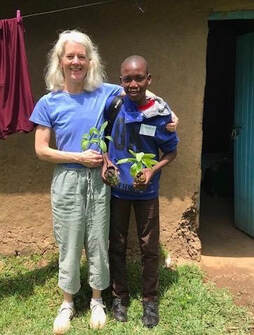 2019 KOCC Trip Report Reflections by Nicola Metcalf on her first trip to KOCC I know I have been changed, but I’m not sure how. Impressions keep surfacing, returning often and at unexpected moments. The discipline, direct manner and deep love of the staff for the children and for us. The constant hum of faith church religion in prayers and frequently expressed gratitude for God whenever we gathered. The perpetual hardship of poverty was up close but belief in spirit carries people. The Kenyans’ powerful love of being together, learning, and their indomitable way of meeting adversity. The cultural norm of greeting everyone you see - an acknowledgment of basic humanity. The personal highlight of my trip was meeting Emmanuel, a boy I have sponsored for 11 years. Emmanuel was 5 when I first began to sponsor him. For 11 years we have exchanged letters and photos once a year. Years ago he sent me a small wooden spoon with his annual letter and it has sat on my kitchen windowsill ever since. Our meeting was an emotional one. He had been performing with his school choir at a national music festival but when his grandmother called to tell him I was at the Care Centre, he left the festival before his last performance and traveled all night by bus to Kakamega. I was surprised when early in the morning I was told that he had arrived. I came down to the dining room and there he was. I had prepared myself. After all, he is a 16 year old boy. Maybe we wouldn’t click, maybe he wasn’t really interested in meeting his sponsor. But we fell in love at first sight. Excited and relieved to meet each other in flesh and blood, we could finally hear each other’s voices, see facial expressions, hug and smile together. It was pure joy. Over the next few days, we got to know each other talking as we walked into town, played games or sat on the porch of the Care Centre. I heard about his dreams for school and work. He called me his mom and I called him my son. I watched him in the evening at dance parties, making new friends, dancing with gusto, enjoying life and making the best of the moment. On the last day, we drove him home. I met his grandfather who was gracious and very grateful for my support of Emmanuel’s education. We shared roasted maize, groundnuts, and tea. They gave me their rooster and also a bag of eggs. I reciprocated with a gift of small items I had gathered and the Care Centre delivered a box of food staples. I know I will return to Kakamega to see Emmanuel again and I have a hunch, after 11 years, our relationship is just beginning. 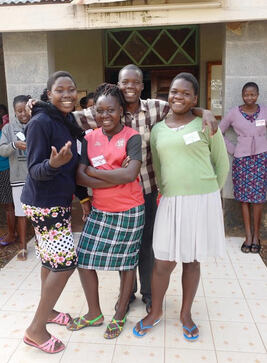 Dear High School Sponsor, I hope you enjoy the report from our summer trip to KOCC (in this envelope). It focuses mostly on the camps with younger children, so I’m adding this bit about High School camps for you. Basically, the camp for the older students was very much like the younger with socializing, games and a trip into town, but with a couple of additions. One was a discussion on “Reality Check” which looked at what the students’ dream-jobs were and what kinds of grades they would need to get into those course programs. We heard most students say they wished to be a civil or mechanical engineer, doctor, lawyer, pilot, nurse, and many other vocations. But the scores they need to get into these programs are often much higher than the scores they are getting in school now, and expecting to move from average to exceptional is a good aspiration but not a good expectation. KOCC staff often seen inertia or depression in recent high school grads who did not achieve their lofty expectations on the all-important exams at the end of High-School. So, our focus was to encourage them to continue striving while also thinking beyond a few specific, hard-to-reach white collar professions. In other words, consider a plan B. Alongside staff and camp counselors, who contributed their own stories and advice, we held discussions with students that we hope will open minds to a wider range of possibilities. Because the bulk of Kenya’s economy is informal enterprise and agriculture, and because most Kenyan adults are either farmers or “self-employed” in some type of business, the staff and we encouraged students to open themselves to the many possibilities in these areas, offering examples of successful Kenyans who have come far from these kinds of humble roots. There was also a presentation from an education expert on how to approach the big exams, which the students said was very helpful. For the HS girls, there was a wonderful “seminar” on women’s health and also menstrual cups (which collect the flow of menstrual fluid). One of the trippers had done a great deal of research on these devices and had fundraised enough to purchase one cup for each girl in the program. These cups are alternatives to tampons and pads, offering demonstrated health benefits as well as economic (and environmental) savings. Finally, there was a presentation by representatives from Marie Stopes, a reproductive health provider whose motto is “children by choice, not chance.” The presenters spoke to both the girls and boys about sexual health, including frank discussions of all the different methods of contraception and how to access them. Although they strongly advocated abstinence, they said it was also very important students know the truth about these matters “just in case.” This presentation was very well received, and the kids said they learned a lot from it. So, you can see we packed in a LOT during the High School camp. For several days in December, the students will again enjoy being with one another, learning, playing football, and having important discussions during the now-annual High School retreat – which, last year, they LOVED! We (Friends of Kakamega and KOCC) are trying our best to help these students develop academic and life-skills to aid them in school and their future. If you wish to talk with me or someone else from Friends of Kakamega about the camp, please email me at [email protected] (or [email protected]). I’m always happy to talk with you! My best to you, Sukie Sack races brought out a lot of laughter during the camps. Each summer, Friends of Kakamega sponsors a cultural exchange trip to the Kakamega Care Centre for first timers, trippers from previous years, and Friends of Kakamega Board members. This year, trippers and the children and young adults in our programs experienced the same joy as is always reported. But there were also changes which enhanced the experience for everyone involved, such as having Kenyans take the lead in planning activities, less structure to camp activities, and home-based children spending one night at the Care Centre. With these changes and the regular activities, excitement, love, and comradery, the August camps proved to be an enriching and enjoyable experience for Americans and Kenyans alike. Kenyans Organize More Relaxed |
| After she visited homes and learned first-hand how families fetch water, cook, study, and sleep, Friends of Kakamega board member Anne Daly was moved by the incredible determination and resilience of the people she visited. “The families are loving towards each other and their neighbors. When we …[left] the families’... [houses], they presented us with a chicken or duck to take back to the Care Center. From the little they had, they wanted to share.” | Care Centre farm guru Alfred, center, is proud to share the results of his hard work helping guardians grow more food. |
Conclusion
Once again, all involved with the cultural exchange trip and the camps had fun, learned a great deal, and had life-changing experiences. The tried-and-true and new activities and approaches made this year special. If you would like to be a tripper and take part in all the fun and learning, we invite you to inquire about applying for next year’s trip. Details for joining a trip can be found by clicking here.
January through March in Kakamega is the busiest time of all as students start their new school year. During this time, KOCC staff are absurdly busy but also excited as they oversee the placement of more than 350 students in schools all over western Kenya.
Care Centre
This year, the Care Centre is home to 47 elementary age students, nine of whom came in new as of January. The new children had been a part of our Home-based Program, but the KOCC management and staff determined that conditions in their homes were so difficult that they needed the kind of protection and environment that the Care Centre offers. During the first three months at the Care Centre, these children have made good friends, and their faces show relief and happiness as they experience the warmth and support of the Care Centre community.
The new school year has brought a number of positive changes for the Care Centre children, geared to improving their academic performance, which is particularly important in Kenya where national test scores determine a child’s educational opportunities. A math teacher from one of the local schools now comes to the Care Centre two nights a week to tutor older students. The Care Centre’s Activities and Education Director Kelvin Kalogoni has also organized small study groups, during which the children lead and teach each other. Test scores have already shown improvement since these initiatives began, and the children are enthusiastic about their learning, challenge one another, and bring more questions and thoughtfulness to their studies.
Another innovation at the Care Centre involves matching each child to a staff member who serves as their mentor. Students check in regularly with their mentors, are able to talk about things important to them, receive guidance and help with academics, and feel extra special love and care from this connection.
Another innovation at the Care Centre involves matching each child to a staff member who serves as their mentor. Students check in regularly with their mentors, are able to talk about things important to them, receive guidance and help with academics, and feel extra special love and care from this connection.
Home-based Family Care Program
In December, KOCC’s Home-based Field Worker Lucy Khasoha led six KOCC graduates in conducting the second annual Monitoring Assessment, during which they visited each home-based child’s home for two hours and examined the positive and negative aspects of each situation. This major effort was very important, not only because it provides an opportunity to check in with parents or guardians, but also to assess and plan for the needs of those homes which lack strong models of care. This year's assessment, which resulted in a 10-page document about every family, also alerted us to some serious problems such as roofs in disrepair and pit latrines full or falling in. We are now working on programs to address these concerns.
At the start of the new school year, the KOCC management committee selected 15 children to be added to the home-based program. Please help us find sponsors for these 15 new home-based children. To learn more about the home-based program, click here.
At the start of the new school year, the KOCC management committee selected 15 children to be added to the home-based program. Please help us find sponsors for these 15 new home-based children. To learn more about the home-based program, click here.
High School
Fourteen new Form I (first year) students started high school through Friends of Kakamega (FoK) sponsorships, and it was an exciting time for all involved. The Kenyan Ministry of Education assigns students to schools based on their exam scores at the end of eighth grade. We were very proud of the marks our students scored on their exams, especially Emmanuel, a Home-based boy who scored in the top 1% nationwide.
With the help of Friends of Kakamega’s sponsors, 52 teenagers are going to high school, where they have opportunities to socialize and get to know people from a broader area, and to mature into well-rounded and competent adults. KOCC also runs the Crossroads Springs Africa (CSA) High School Program, which sends another 120 young people to high school through support from CSA. Through the two programs, KOCC sends nearly 175 students to high school.
With the help of Friends of Kakamega’s sponsors, 52 teenagers are going to high school, where they have opportunities to socialize and get to know people from a broader area, and to mature into well-rounded and competent adults. KOCC also runs the Crossroads Springs Africa (CSA) High School Program, which sends another 120 young people to high school through support from CSA. Through the two programs, KOCC sends nearly 175 students to high school.
High School Retreat
In December, KOCC held a first-of-its-kind 4-day retreat for ALL 175 high school students in its programs, using the facilities of a high school that was empty during vacation. Sessions covered topics such as life skills, relationships, health, substance abuse, HIV, leadership, and integrity. Students participated in games, competitions, and a talent night, and they also had plenty of time to just hang out with their peers. Deemed a great success by all involved, students and staff expressed their hope for similar events in the future. We are very grateful to Crossroads Springs Africa for providing funds for such an important event.
We have much exciting news to report in Friends of Kakamega’s 15th anniversary year.
- SunKing solar lamps bring bright, clean light to over 250 KOCC homes.
|
|
Because lighting changes lives, Friends of Kakamega has made a commitment to upgrade lights in the homes of every child and family in KOCC's programs. We send thanks to all the sponsors and donors who supported this effort by giving generously to the summer 2017 SunKing solar lamp project. Together we brought durable and bright lights to nearly a thousand children in over 250 homes in Kakamega Orphans Care Centre's (KOCC’s) big family.
Very few of the families we support are connected to the electric grid, but this project means that 100% now have clean and bright light in their homes. SunKing Pro 2 solar lamps are 16x brighter and 100% safer than kerosene lanterns, and one lamp provides enough light for all young learners in a home to study as late as they wish. Poor families in rural Kenya typically light their homes with dim kerosene lamps, but this type of lighting strains eyes and budgets, resulting in less study time for children. Kerosene-fueled lanterns also produce a plume of black smoke, which affects respiratory health for families living in traditional, poorly ventilated homes, and accidents with them can result in severe burns. |
|
We addressed this problem in the past two years by asking sponsors to help us provide Luci lights to all students in our home-based and Care Centre programs. The response from these children and their families was overwhelmingly positive, but, since then, we’ve observed that the lifespan of Luci lights is just one or two years, and families’ need for light is continuous. Prices for brighter, higher-quality solar lights have dropped, so we decided to go one step further this year and give a lamp that will last to all the families we support.
|
We could not think of a better $32 investment in the futures of these children and families, and both we and they send heartfelt thanks to all who contributed.
New staff in Kenya and Maine keep us moving forward.
- We are proud to announce two new staff members in Kakamega.
|
Lucy will coordinate outreach efforts to the 125 children and families we support, helping households address the challenges they face. She holds a diploma with distinction in social work and community development, and she has experience working on children’s poverty issues in both the government and nonprofit sectors. |
Both of these women are skilled professionals who care deeply about making a difference through their work. We offer a hearty welcome and congratulations to Lucy and Lydia, and we thank them for accepting these challenging roles.
- We are excited to announce that John Chisholm has joined Friends of Kakamega as our first paid U.S. staff person.
|
He has taken the newly created position of Finance and Operations Manager and adds numerous, invaluable skills to our organization. After fourteen years of growth built entirely with volunteer labor, we found we had the momentum and resources to grow even faster but were struggling to keep up. So, in our fifteenth year, we hired John to help us develop financial and operational systems commensurate with our size and our ambitious vision for the future.
|
The new position includes working with KOCC to develop new programs in Kenya, managing old and new collaborations on both sides of the ocean, and organizing our work so it attracts new partners and larger funding through foundations and planned giving. To make all of this happen, we needed someone who understands the Kakamega community and Kenyan social and political issues, and who has the experience, education, and commitment to accomplish our goals. John fits the bill perfectly since he has been volunteering with our project since 2003, has a master’s degree related to NGO management, and has visited Kenya numerous times, both at the KOCC and for a graduate project in Nairobi.
He has been working for Friends of Kakamega since the start of 2017, applying his knowledge, skills, and enthusiasm to the project in many capacities. His accomplishments so far include building our new website (see below), Guidestar certification, new financial systems, and, most of all, helping us develop new programs, update our mission, and work with KOCC to craft a strategic vision for our future. His deep knowledge of and experience with our programs come from his being the son of our founder and director Sukie Rice. We feel blessed that he is committed to continuing and expanding what Suke helped start with the same dedication and energy that she has brought to the organization thus far. Thanks to John, you will notice changes and improvements in the way we do things and communicate.
He has been working for Friends of Kakamega since the start of 2017, applying his knowledge, skills, and enthusiasm to the project in many capacities. His accomplishments so far include building our new website (see below), Guidestar certification, new financial systems, and, most of all, helping us develop new programs, update our mission, and work with KOCC to craft a strategic vision for our future. His deep knowledge of and experience with our programs come from his being the son of our founder and director Sukie Rice. We feel blessed that he is committed to continuing and expanding what Suke helped start with the same dedication and energy that she has brought to the organization thus far. Thanks to John, you will notice changes and improvements in the way we do things and communicate.
- Friends of Kakamega launches a new website.
We are proud of our new and improved website and invite you to visit it to learn more about KOCC’s programs. You’ll find the site to be rich with information and photos, and we’ve also made it easy to donate online and pay sponsorships in automatic monthly installments.
You're actually reading this newsletter on our new site, so please have look around by clicking through the navigation menu at the top of this page.
You're actually reading this newsletter on our new site, so please have look around by clicking through the navigation menu at the top of this page.
- Friends of Kakamega will be the international focus for Rotary Clubs in 2018.
|
In October, we learned that Rotary District 7780, which includes 40 clubs in Maine, New Hampshire, and Massachusetts, chose us to be the focus of their 2018 international cultural exchange/service initiative. The seeds of this exchange were planted last year when the Rotary Club in Freeport, Maine, supported our work in Kakamega by funding a very successful farm business training program for 16 young women. The Rotarians plan to send a small exploratory team to Kakamega next spring to meet Kenyan Rotaries and learn more about the Kakamega community and KOCC’s programs. We don’t yet know what will come out of this partnership, but it definitely feels promising. Stay tuned.
|
Participants in our new Strong & Healthy Young Women program recently learned how to build kitchen sack gardens as part of a workshop promoting better nutrition.
|
These sacks full of soil and manure take very little space and require minimal effort to weed and water yet the technique produces quite a bit of food. With their own multi-story gardens at home, the 26 young women involved and their children will have a consistent and convenient, year-round variety of fresh vegetables for their kitchens.
The young women learned about the importance of different vegetables for maternal and child nutrition in a workshop, and, afterward, they went outside to practice building a multi-story sack garden. KOCC graduate Priscah Chamasia recently completed a diploma in nutrition and a hospital internship advising new mothers, so she was the perfect teacher for the workshop and was happy to contribute. |
Following the nutrition workshop, the twenty-six young women and Priscah got hands-on experience by filling and planting vegetable sack gardens on a small strip of empty land behind the Care Centre. Soon, participants will be harvesting their own sack garden produce at home, and the low-cost planters pictured in this post will be producing food for Care Centre children while serving as an inspiration to visitors and passerby.
|
Recently a group of KOCC graduates, after organizing into an alumni association, started looking for ways they could give back to the organization.
To start they decided to throw a party for the current Care Centre children, and the event went off without a hitch! Our grateful graduates brought big speakers and purchased meat, milk, soda, popcorn, and all kinds of other yummy things for children and staff. Everyone enjoyed their feast and - just as much - the dance party that followed. |
|
We have great admiration and respect for our graduates who came out of the woodwork to find a way to give back to the organization that was once a major part of their lives. Thank you, KOCC alumni, for showing your appreciation and staying involved in the Care Centre family!
|
Friends of Kakamega's News & Updates
This page offers occasional highlights, news, and updates about our work in Kakamega.
Archives
July 2020
May 2020
April 2020
October 2019
October 2018
May 2018
November 2017
September 2017
July 2017
June 2017
May 2017
April 2017
March 2017
Categories
All
College & University
Exchange Trips
Graduates
High School
Partnerships
Small Business Training
